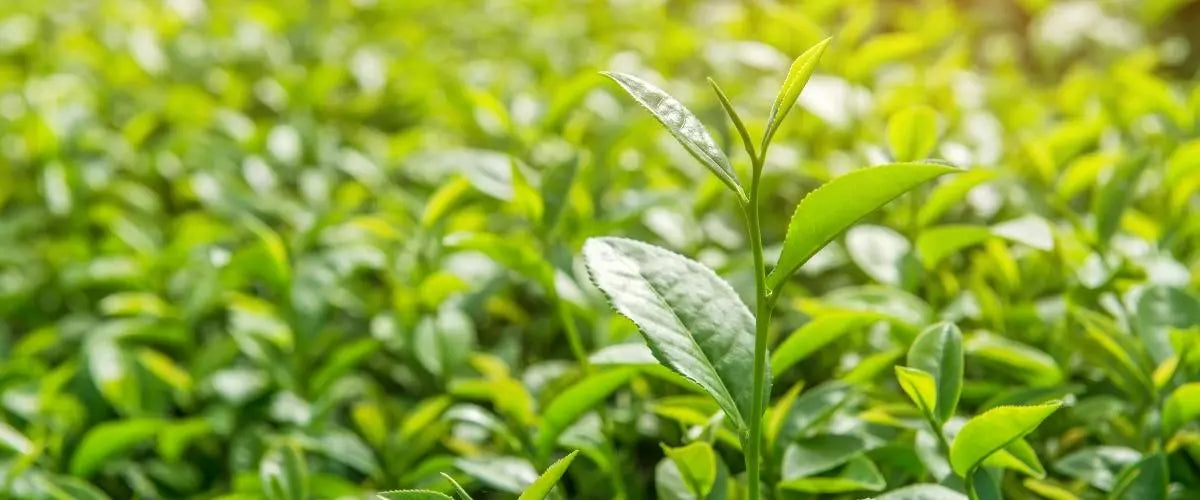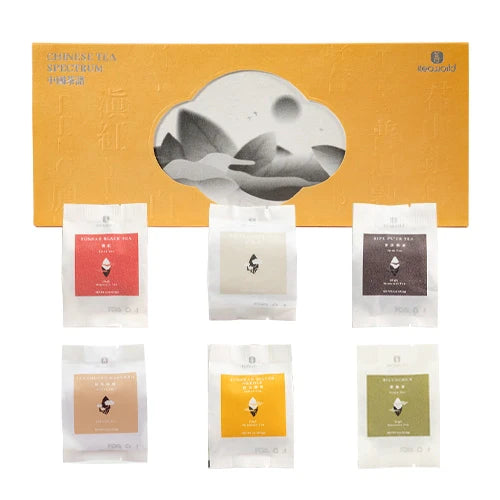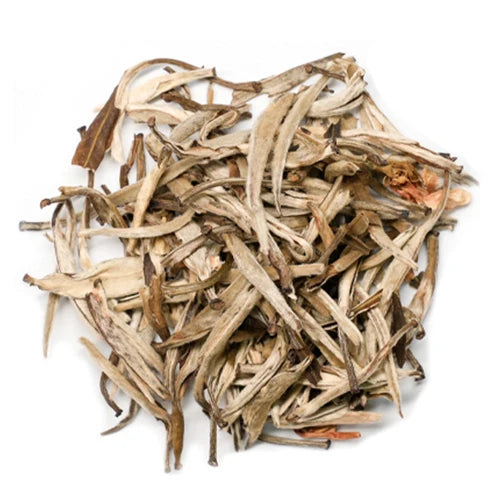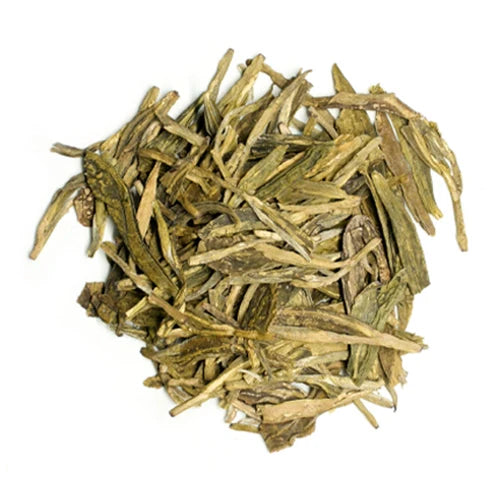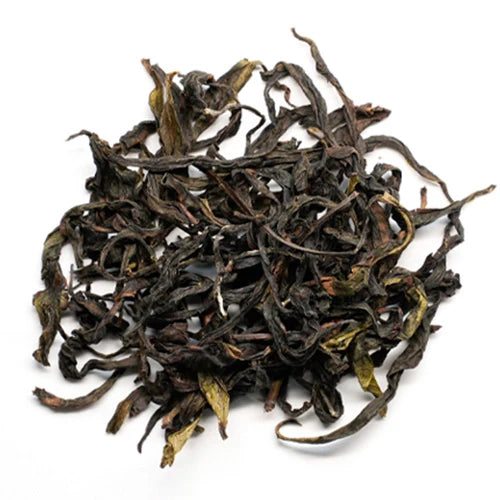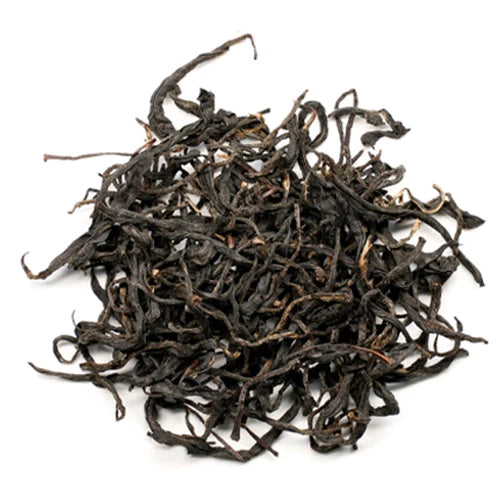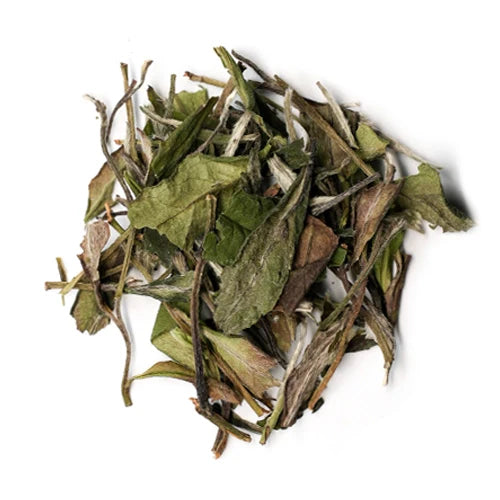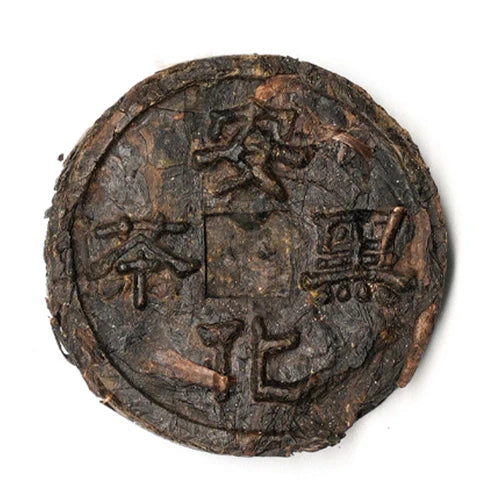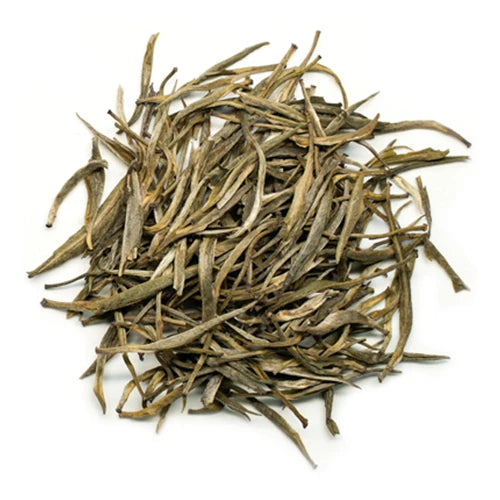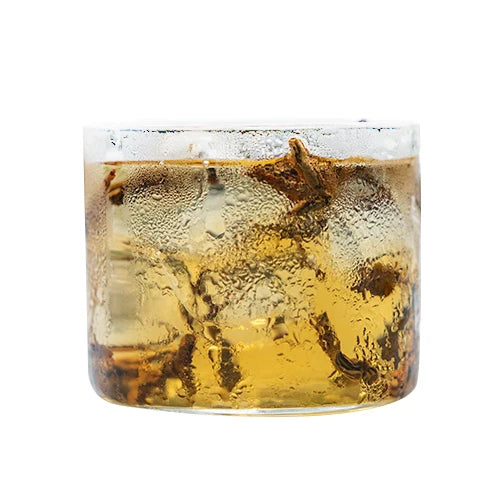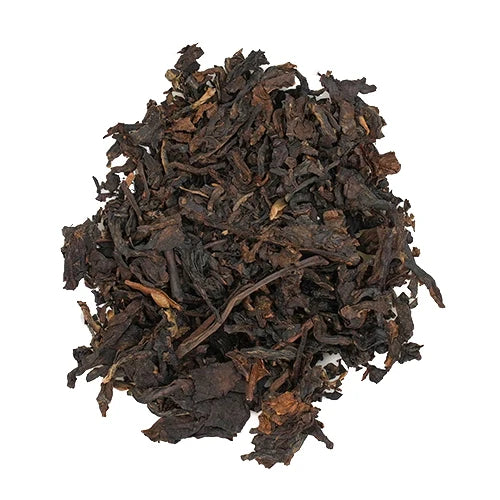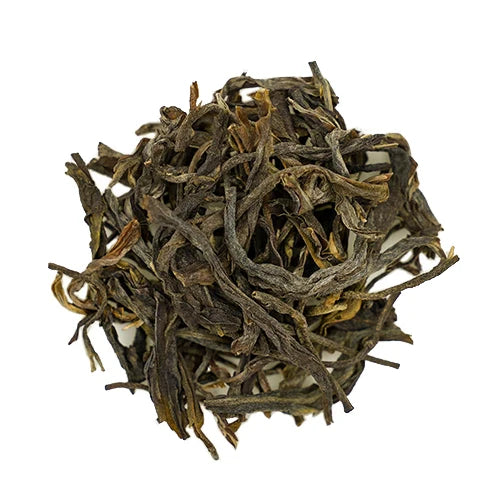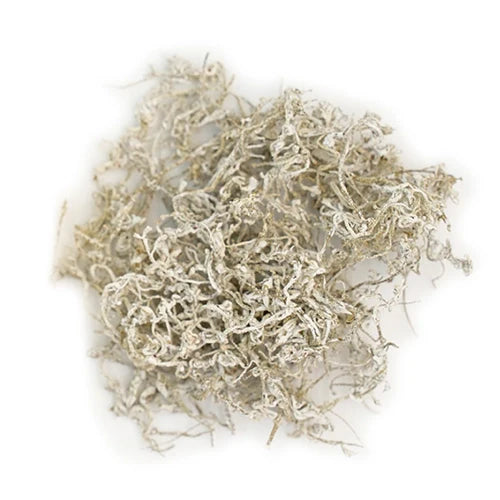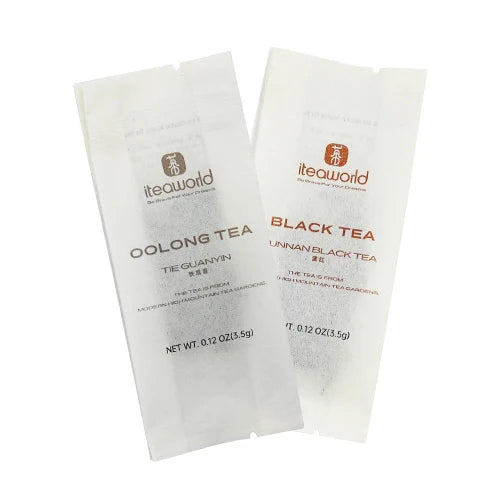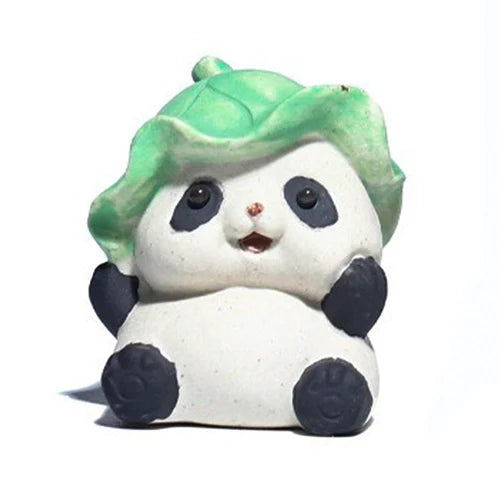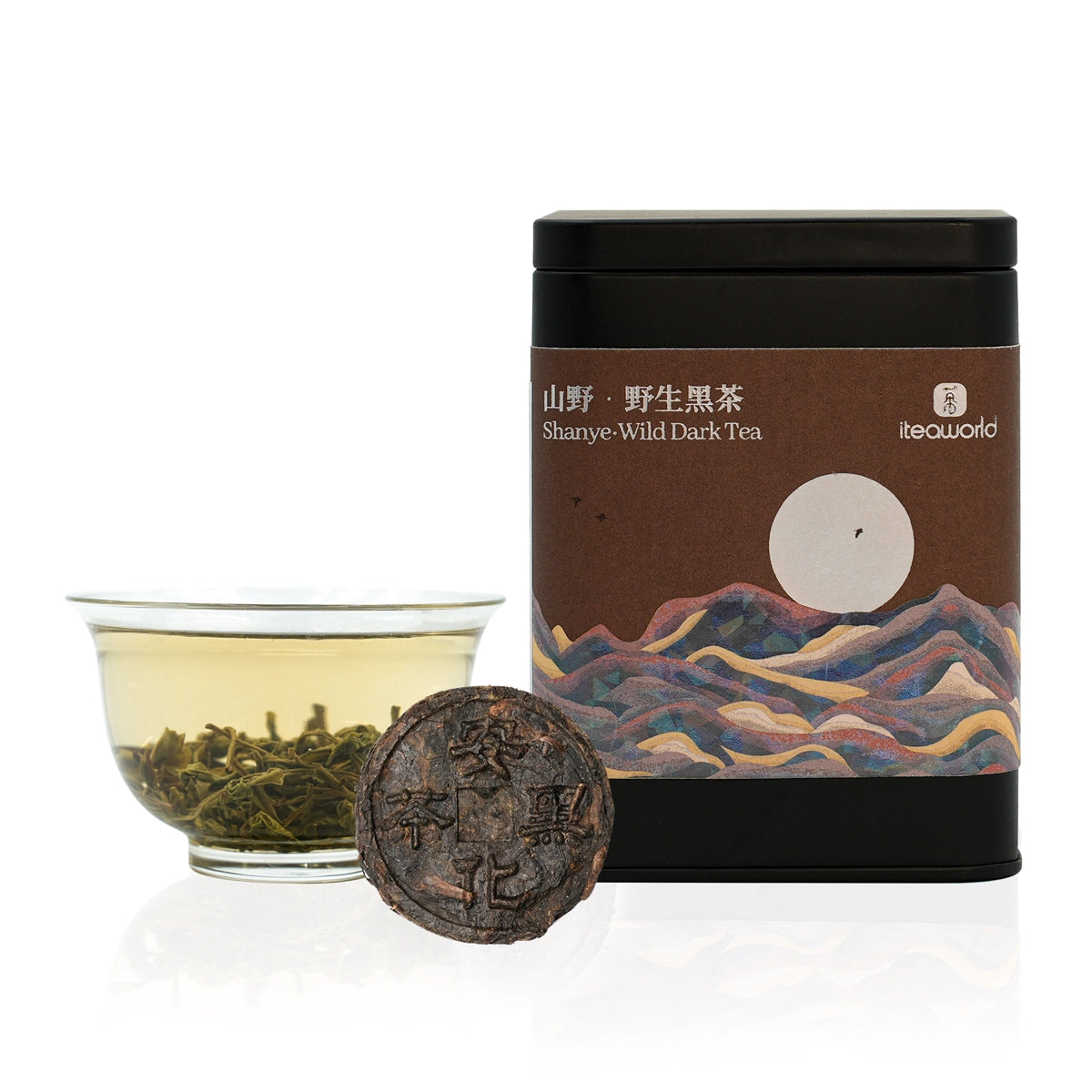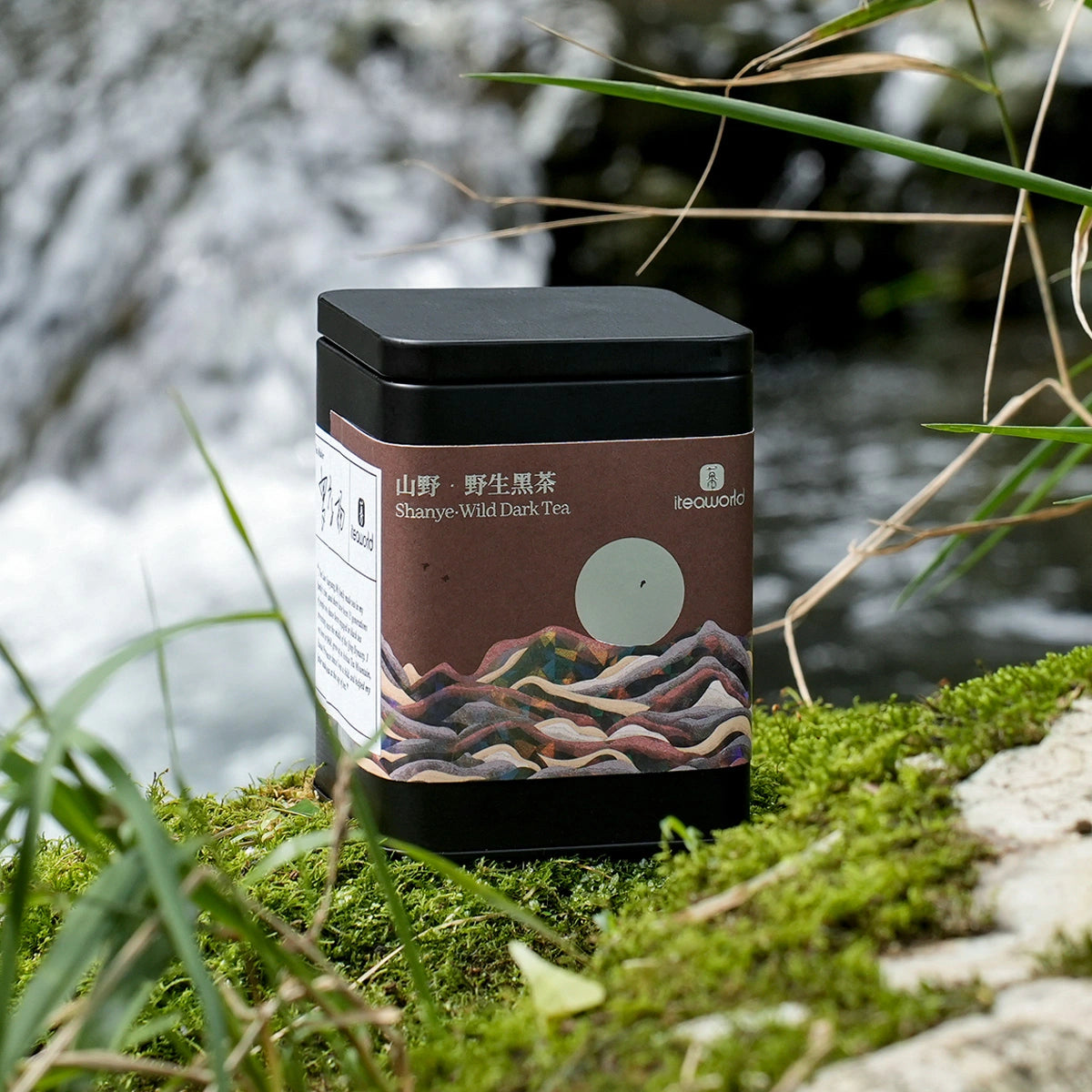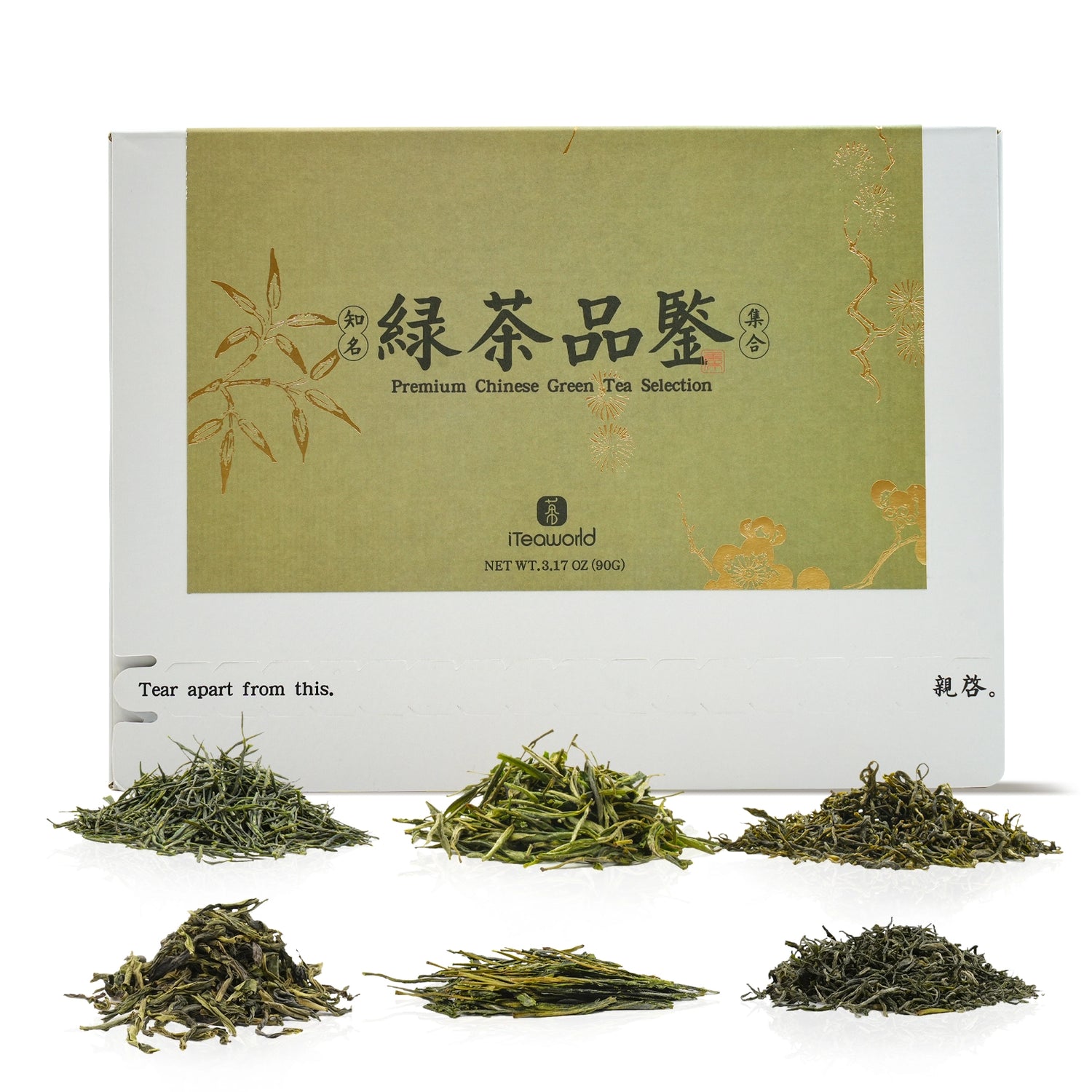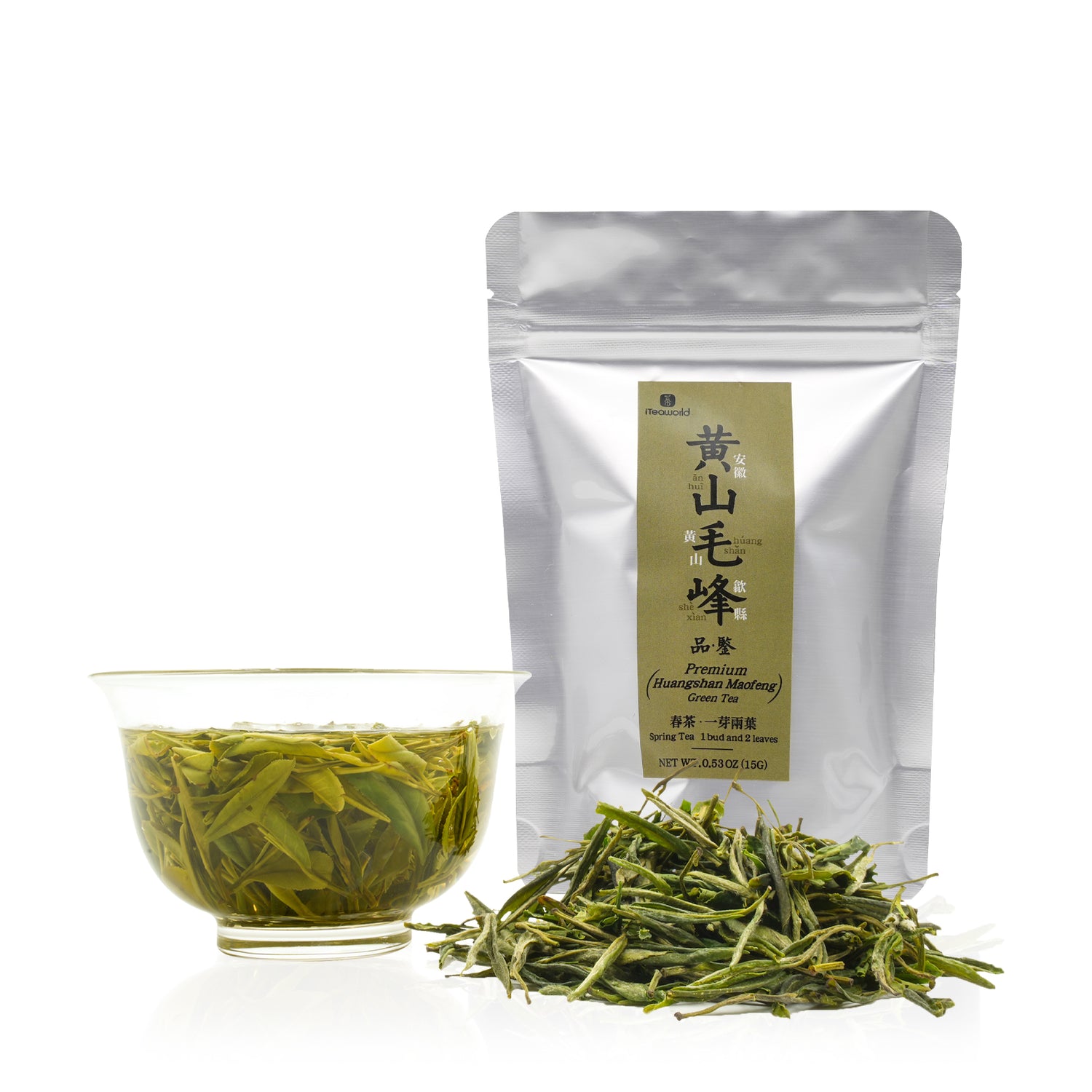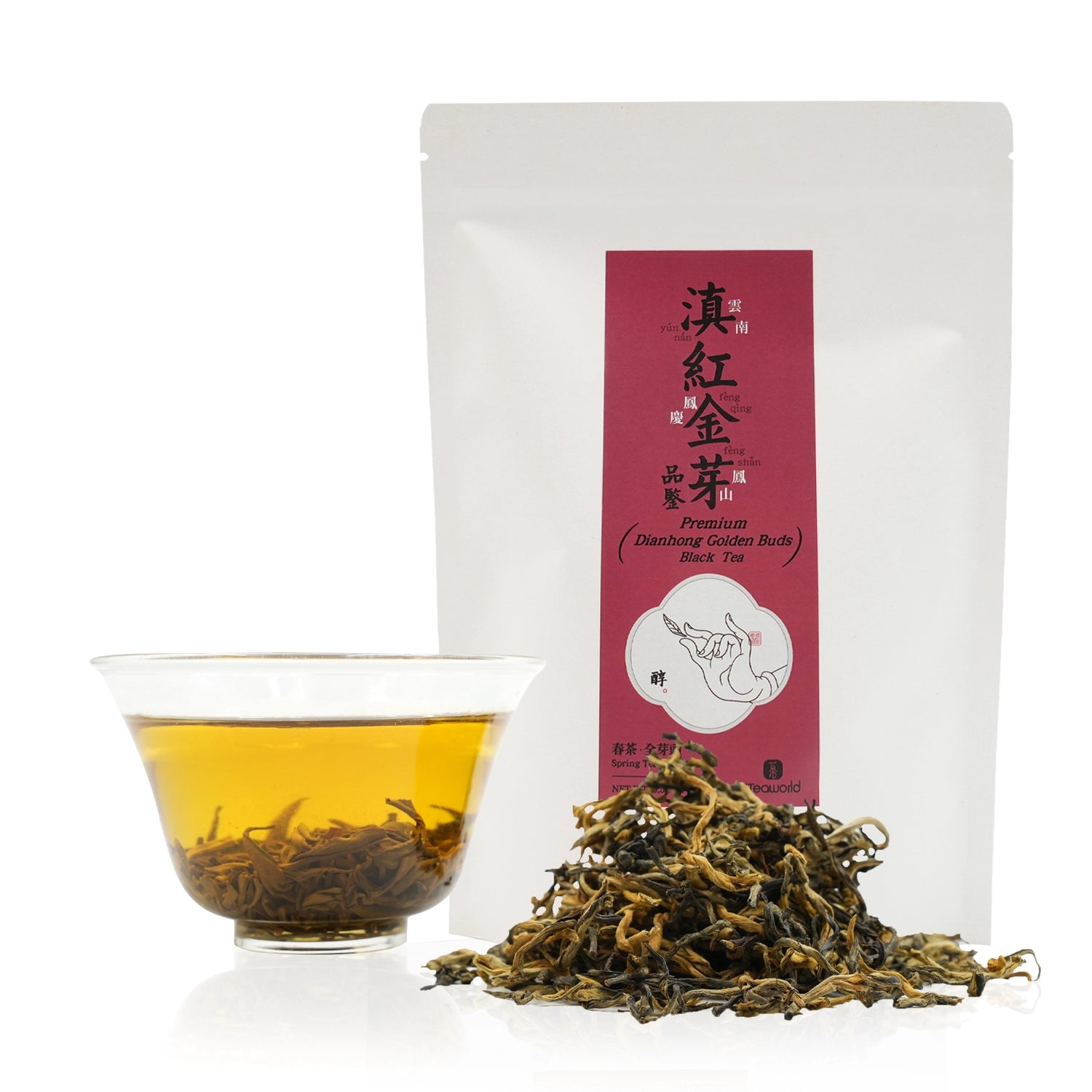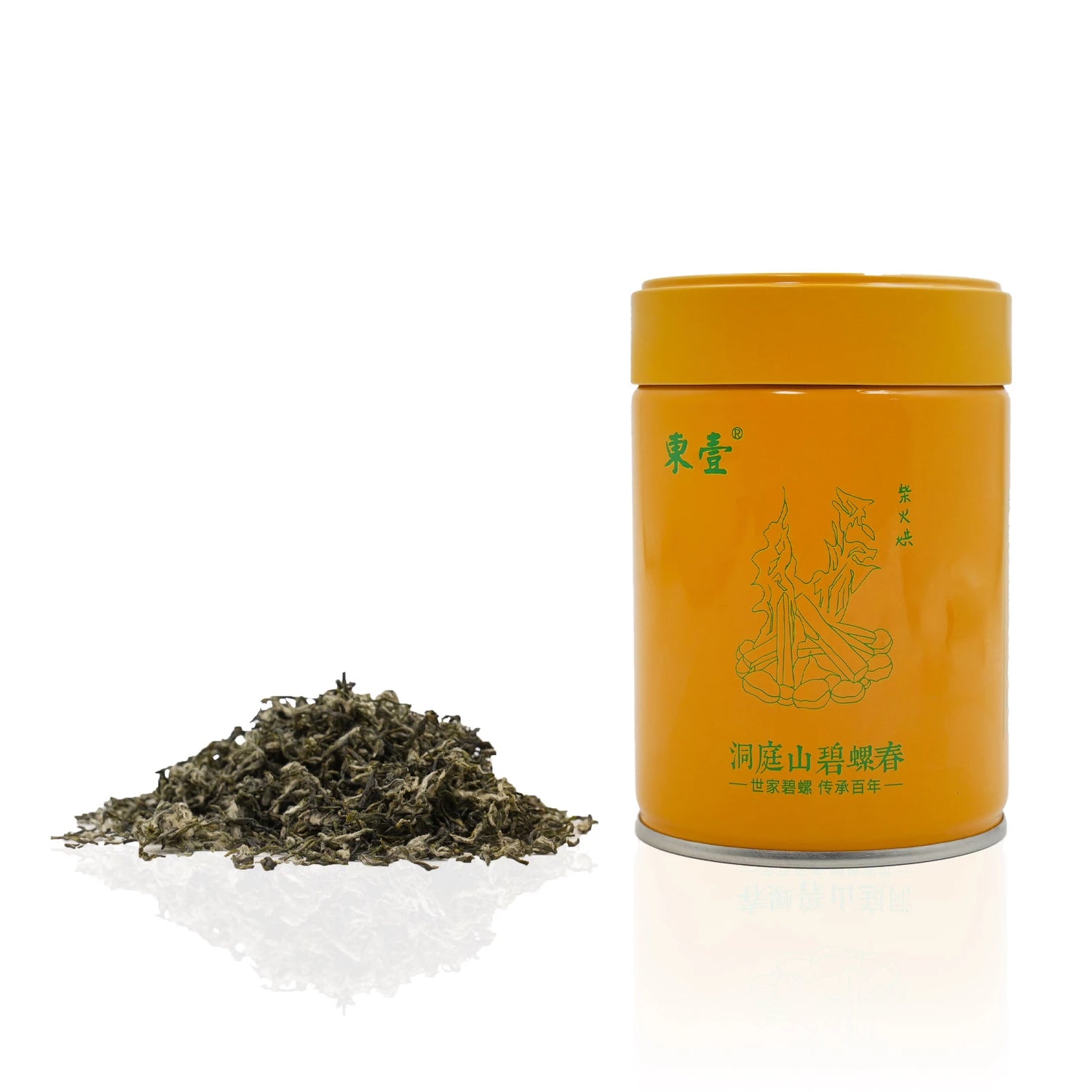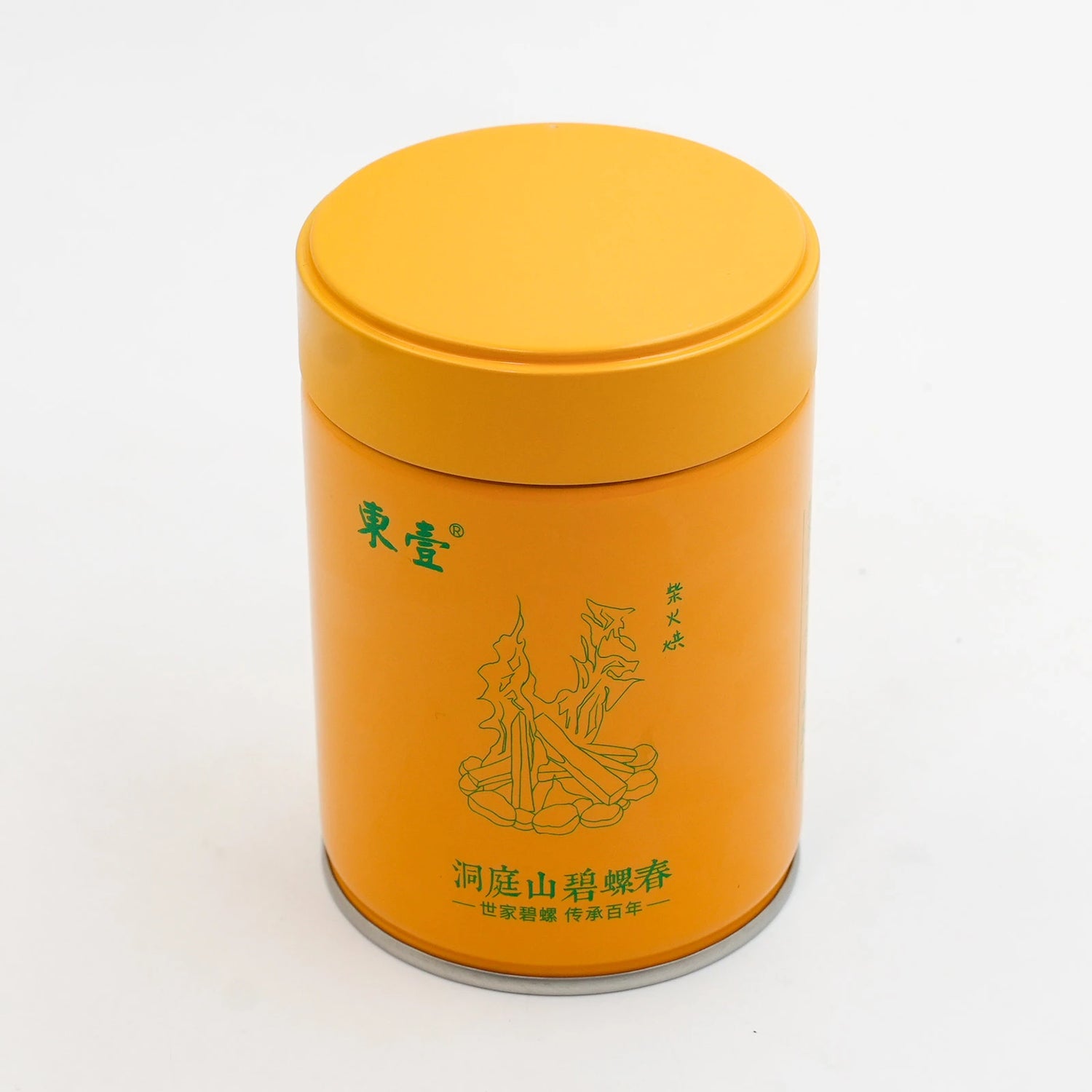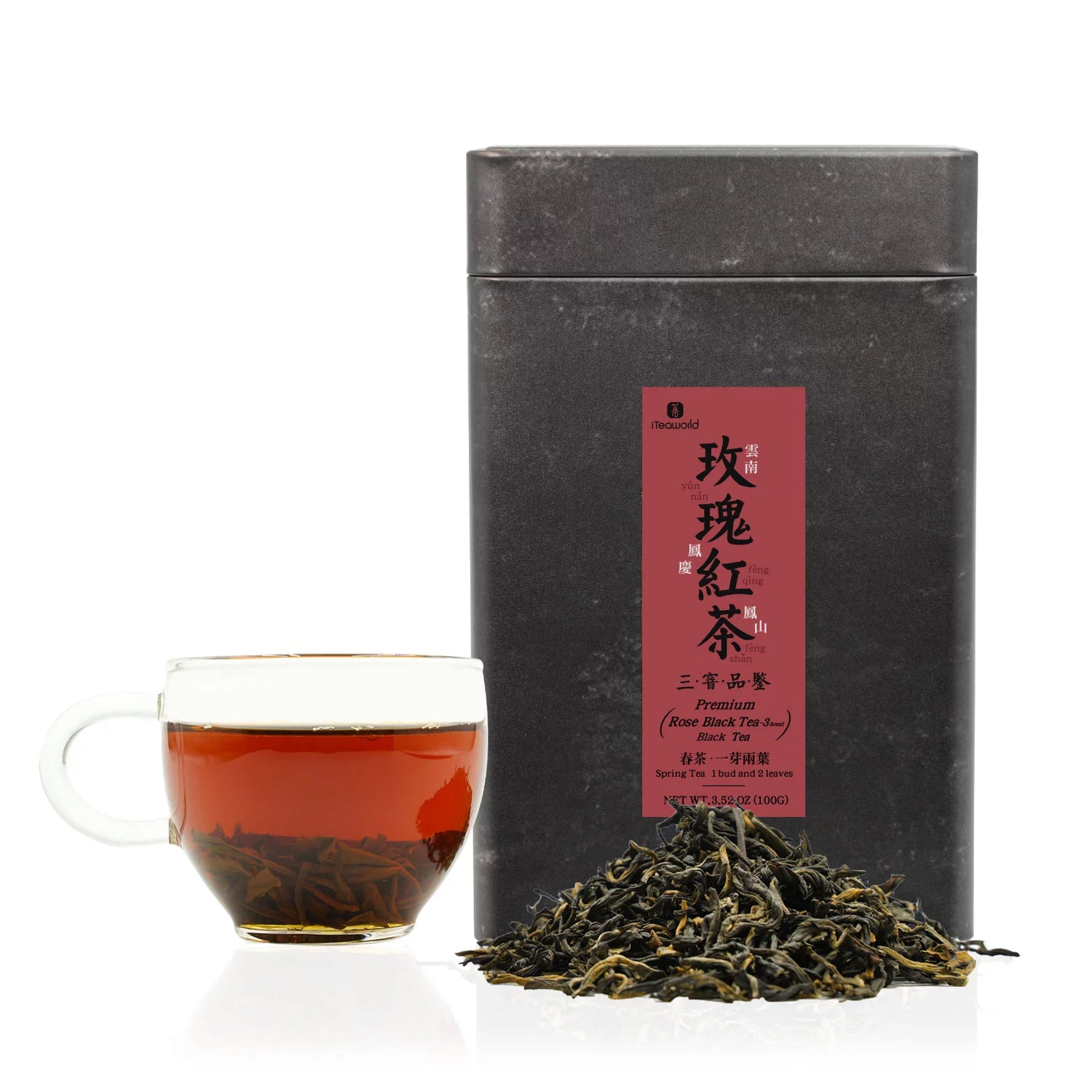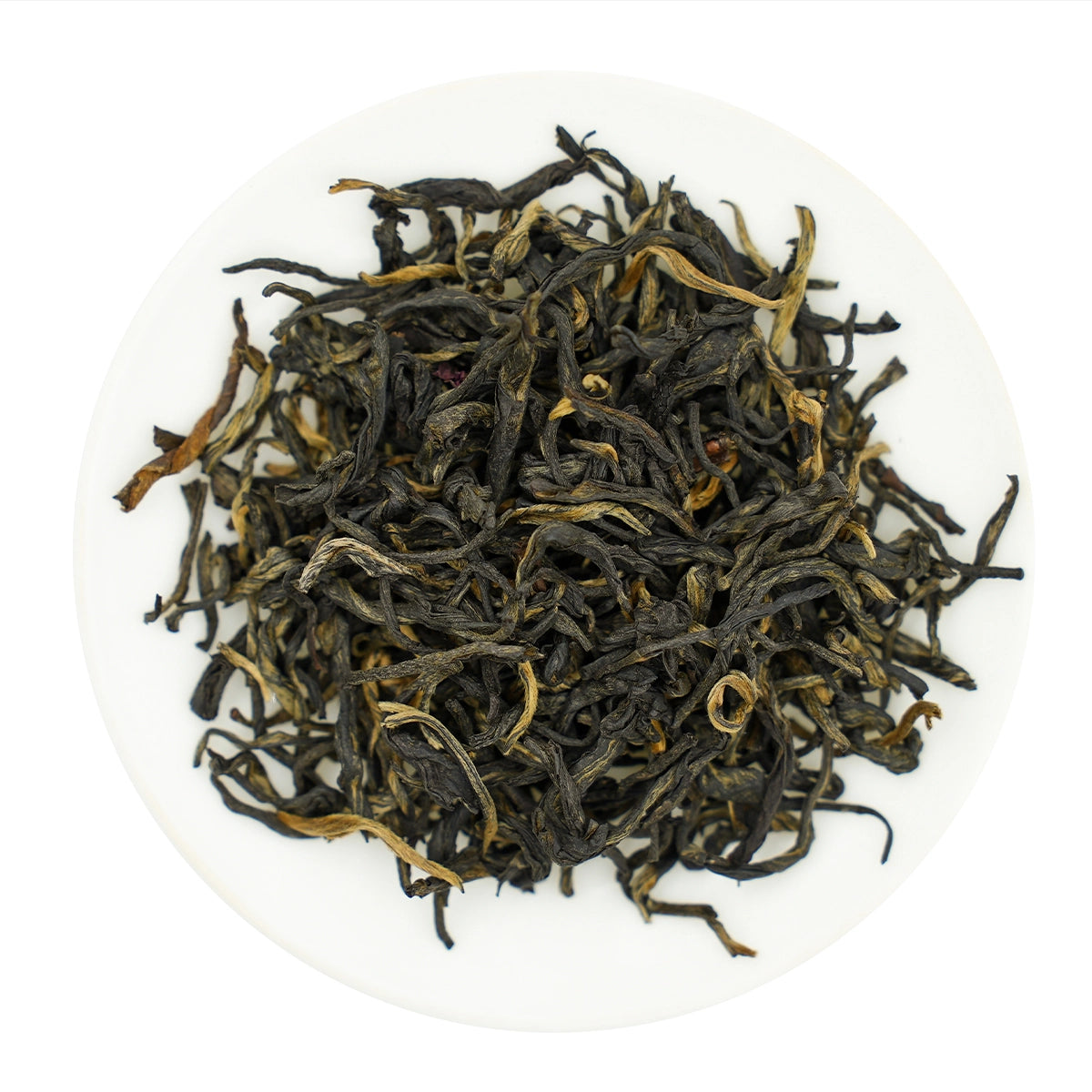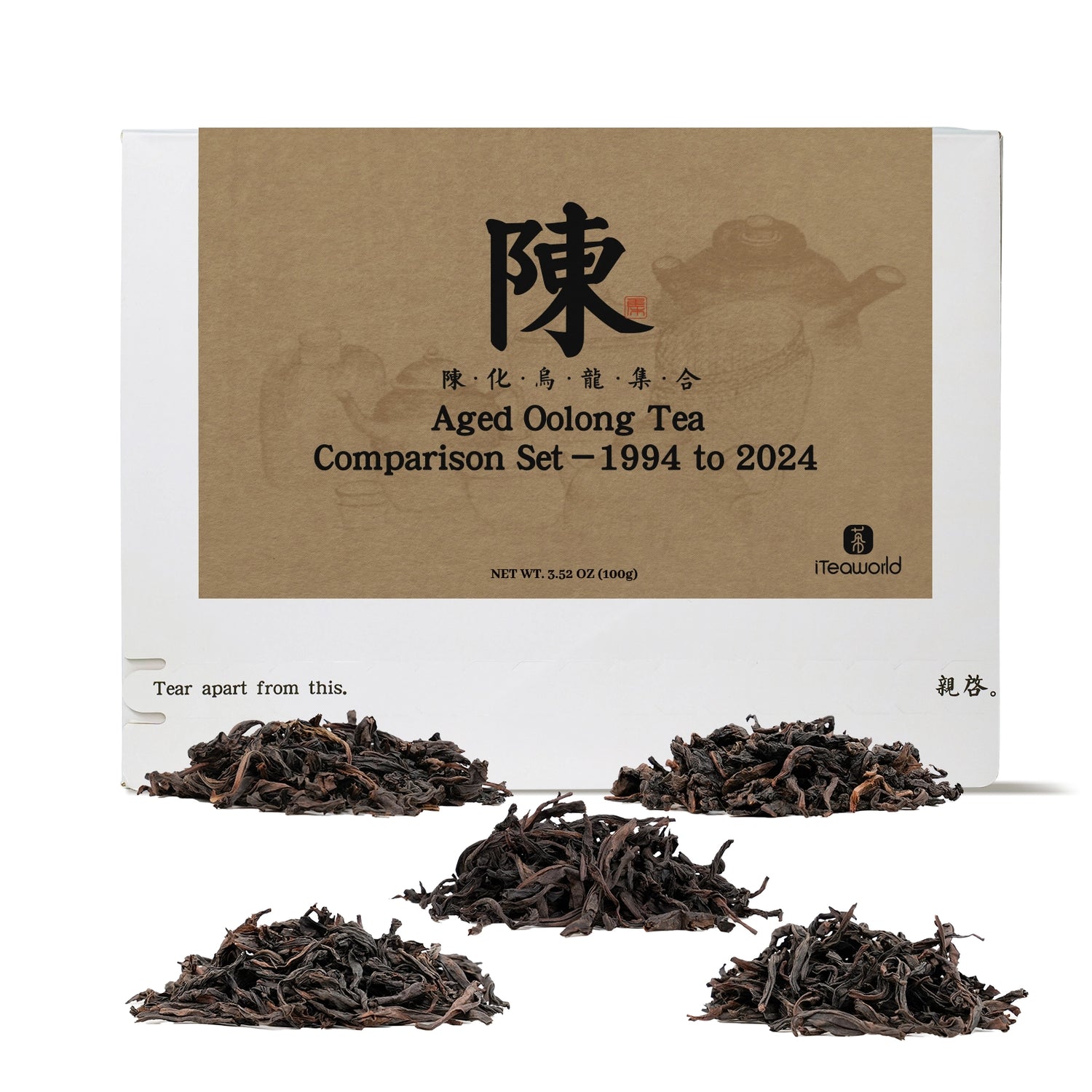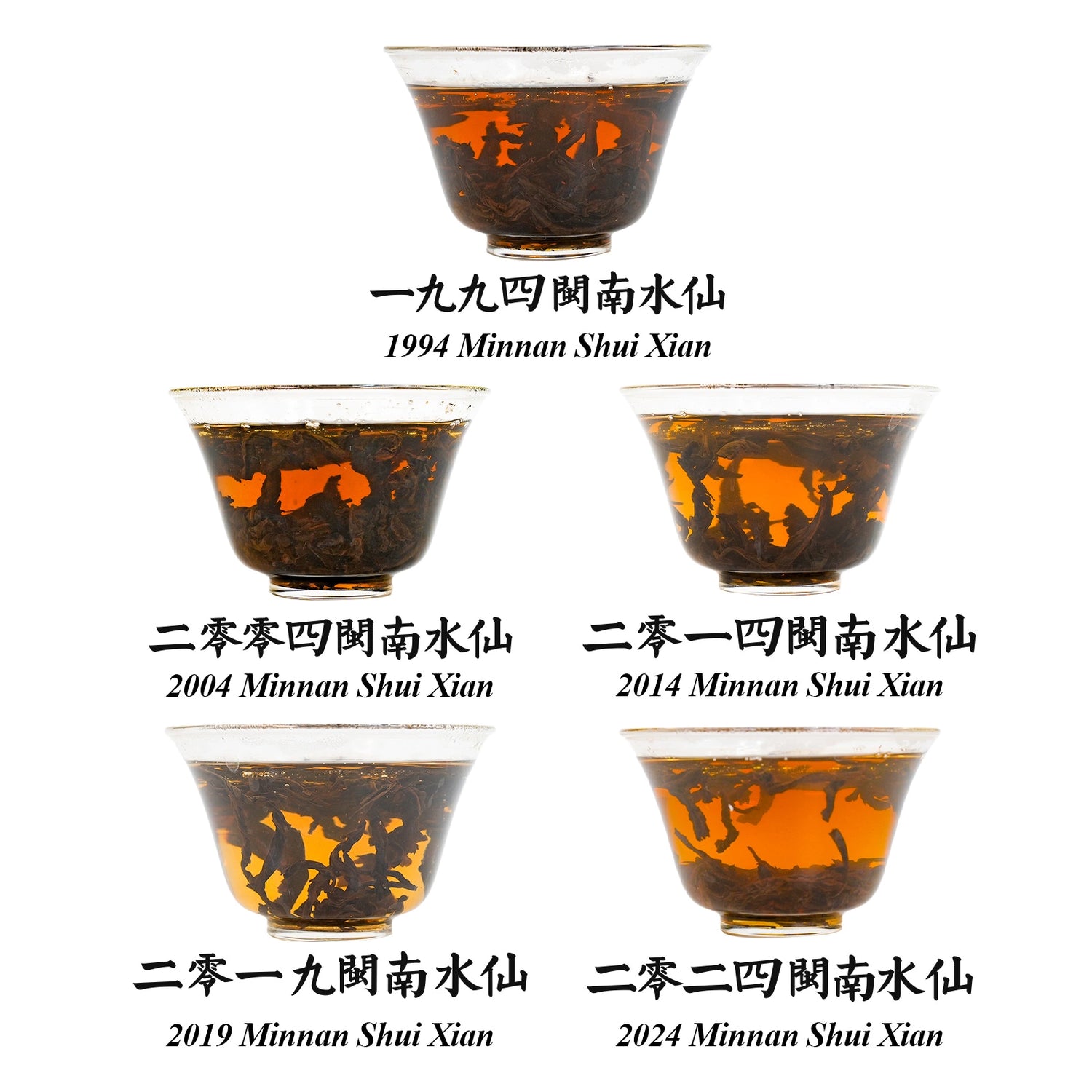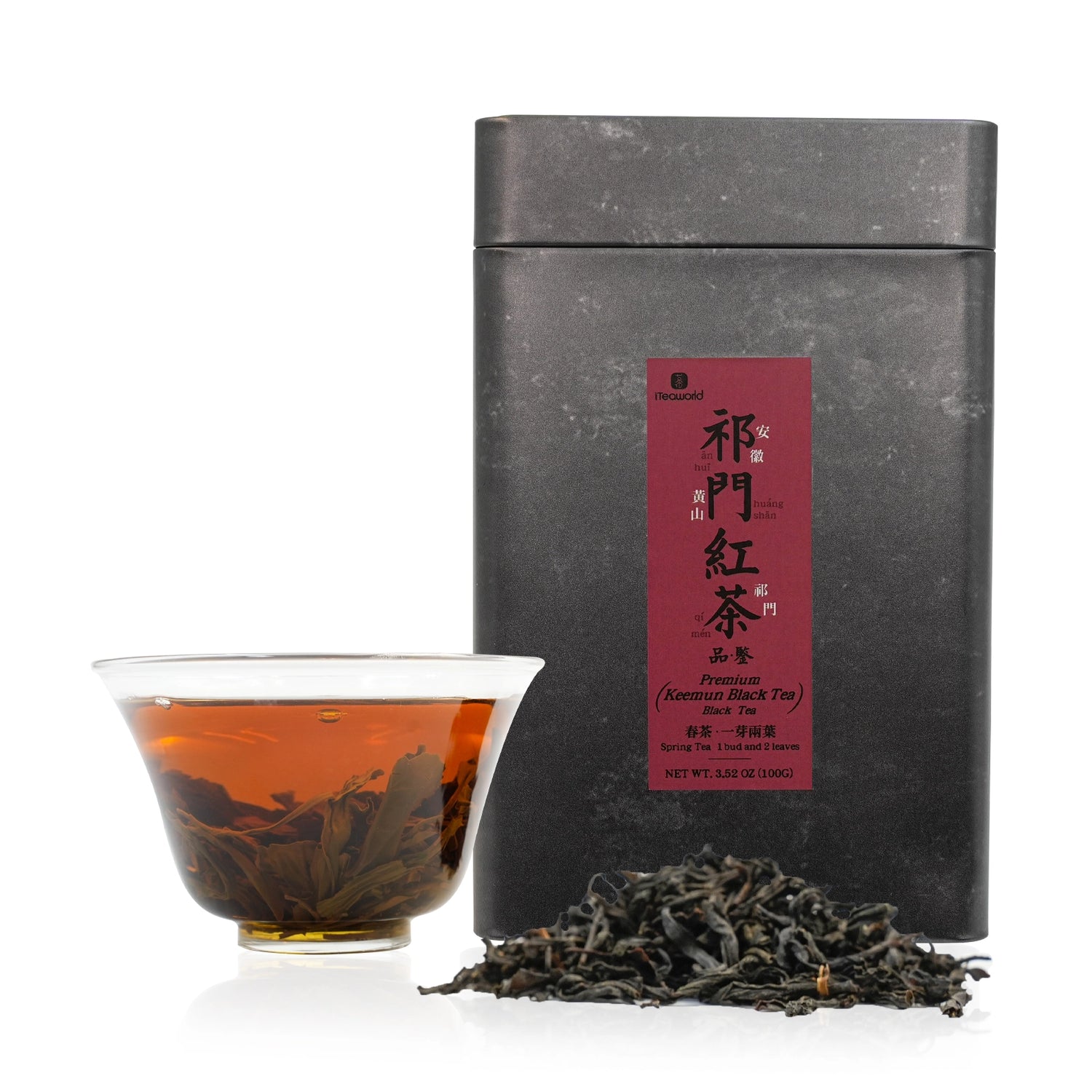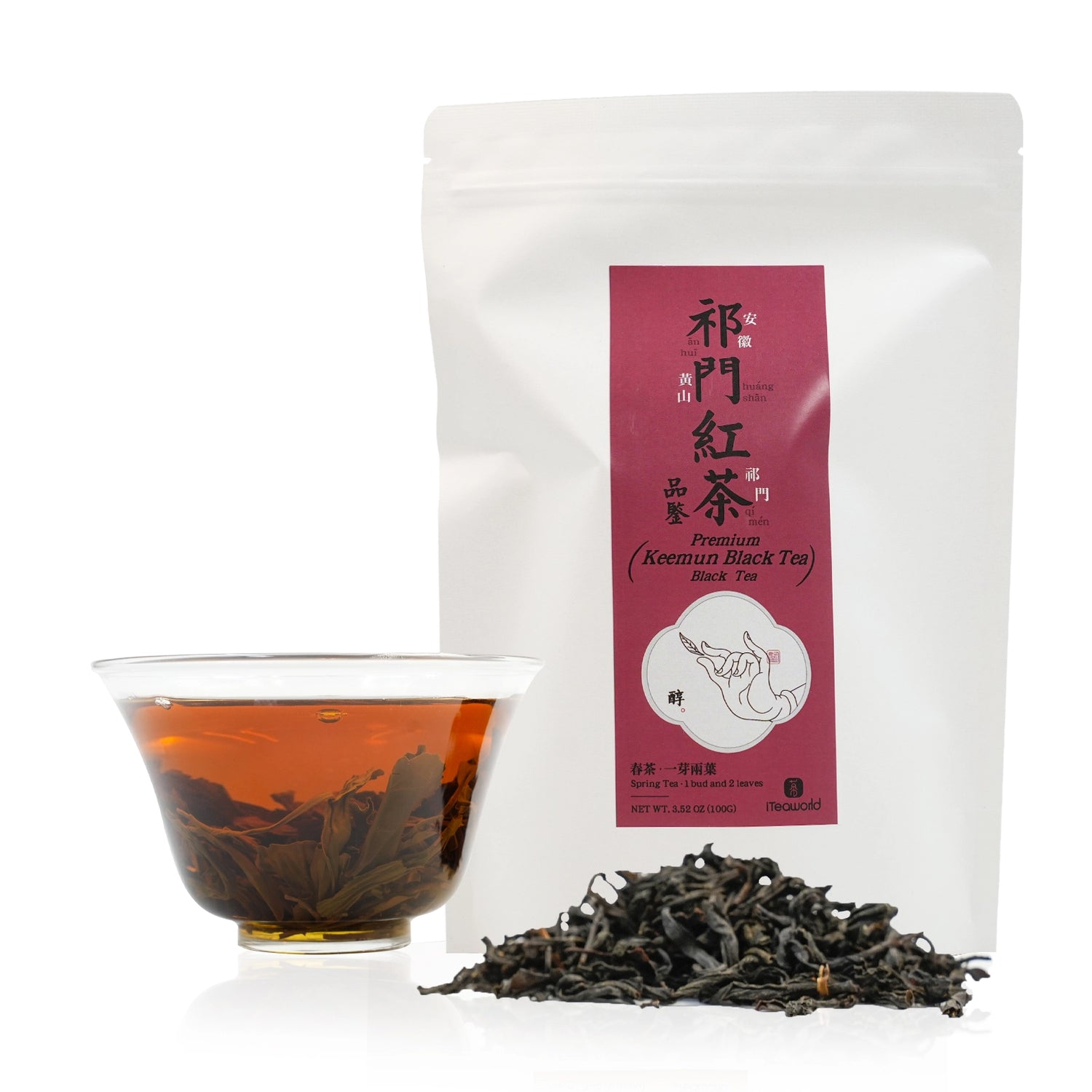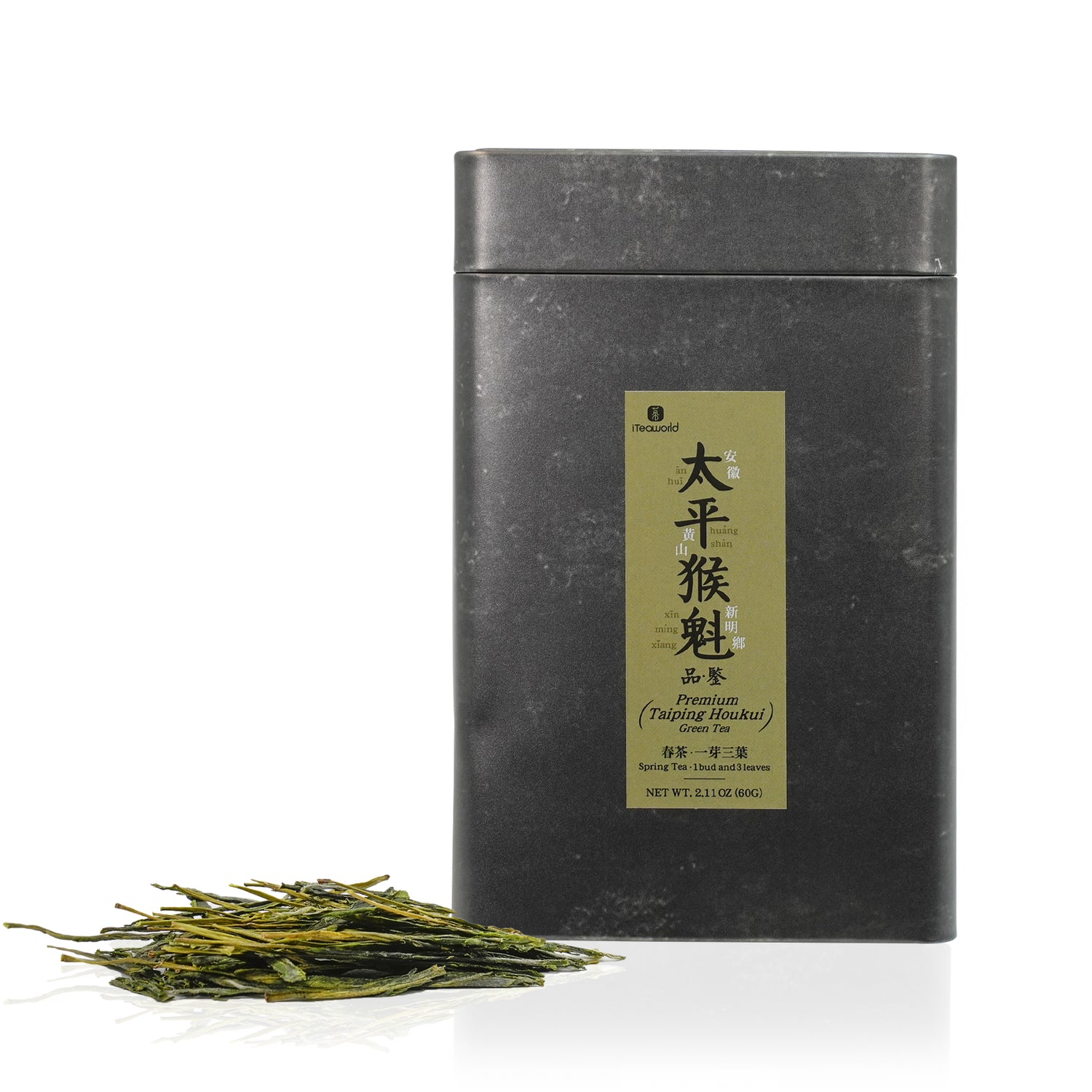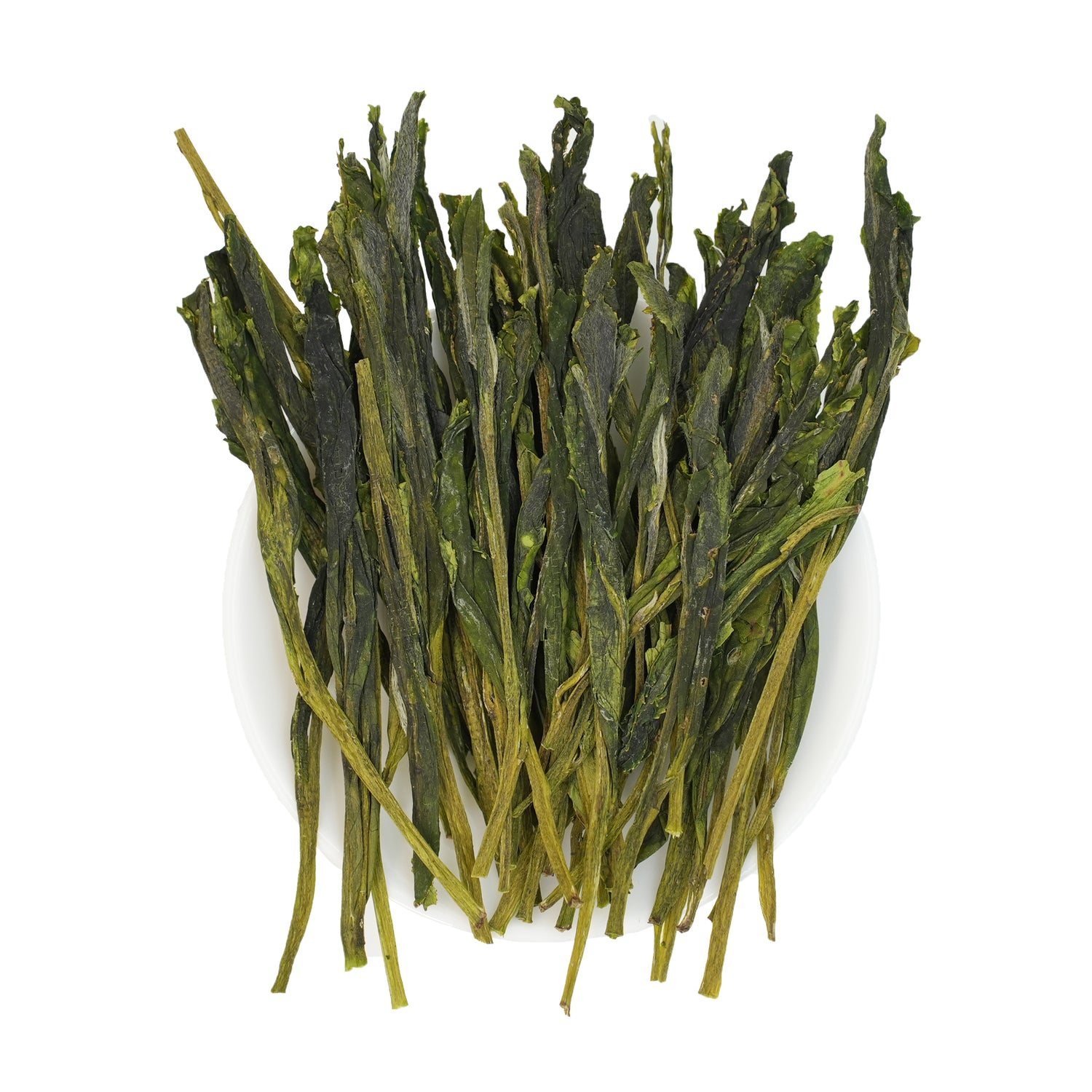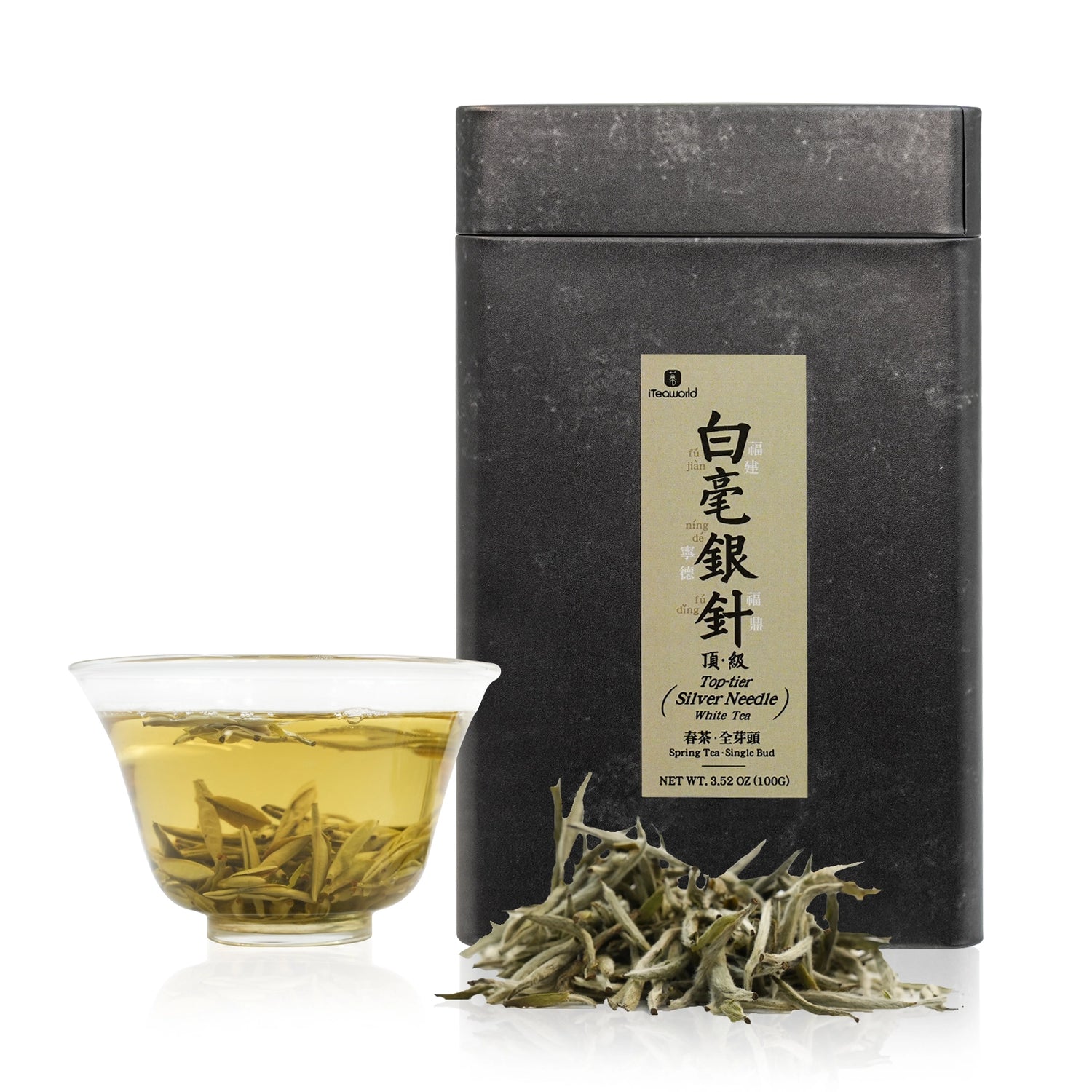Sort by:
204 products
204 products
Wild black tea is produced in Anhua County, Yiyang City, Hunan Province, the birthplace of Anhua black tea. The tea gardens are primarily located in mountainous areas at an altitude of 1000 meters. Grown in a pristine ecological environment with abundant vegetation, this wild black tea is cultivated without the use of chemical fertilizers and pesticides, resulting in limited yield with only one spring harvest per year. Processed using the Qiujiang Bopian Tea technique, it offers a pure and long-lasting pine-smoke aroma. The taste is rich, mellow, and sweet, with a lasting aftertaste and a unique pine-smoke fragrance. After consumption, a lingering sweetness remains in the mouth, leaving a memorable and unforgettable experience. Even after multiple infusions, it retains its distinctive aroma.
You may have tried various green teas, like Longjing, Zhucha, and Jasmine tea, but you're looking to explore more high-quality, reasonably priced Chinese teas. To ensure value, we've carefully selected premium teas from China's top ten famous varieties, following these key principles:
Collaborating with experienced tea masters to ensure traditional and skilled craftsmanship.
Choosing high-grade leaves—one bud and one or two leaves—while hand-picking out stems and dust to ensure purity.
Sourcing directly from tea farmers to maintain freshness and quality, cutting out the middleman.
Ensuring our selections are fresh spring teas from 2024 to capture vibrant flavors and aromas.
Picking high-quality leaves from authentic tea varietals to guarantee unique taste.
Balancing quality with affordability to meet consumer needs.
Sourcing from core production areas or nearby regions to ensure consistency in terroir.
Avoiding lower-grade flatland teas, focusing on those grown at altitudes above 600 meters to enhance flavor complexity.
Net weight: 90g, including:
Premium Biluochun: 15g
Premium Enshi Yulu: 15g
Premium Xinyang Maojian: 15g
Premium Lu'an Guapian: 15g
Premium Taiping Houkui: 15g
Premium Huangshan Maofeng: 15g
Here’s a brief overview of each tea:
Huangshan Maofeng: This tea is sourced from a renowned high mountain region, featuring tea trees over 60 years old grown in gravelly soil at 800 meters elevation. Recognized as a national intangible cultural heritage, Huangshan Maofeng boasts a distinctive aroma with floral and sweet notes, producing a clear, bright green-yellow tea that offers a pure high mountain experience.
Liu'an Guapian: This historic royal tribute tea was once reserved for the imperial family. Our premium Liu'an Guapian is hand-crafted by a master with decades of experience, sourced from high-altitude tea plants at 600 meters. The spring-harvested leaves ensure a rich fragrance and refreshing flavor, resulting in a pure, lingering aftertaste.
Taiping Houkui is a famous green tea from the Taiping area of Huangshan, Anhui Province, China. It comes from the core production region—Qiaoshan Village in Xinming Township—known for its cool, humid climate and fertile soil, perfect for growing tea. Our premium Taiping Houkui is made from one bud and three leaves, usually harvested around the Grain Rain season, with fine white fuzz on the leaves indicating top quality. The tea is grown from the traditional seed-propagated ‘Shi Da Shu’ variety, which matures later than usual. Due to the high altitude in Huangshan, the first harvest also takes place around Grain Rain. We work with Master Yu Jianguo, a tea farmer with over 20 years of experience, to produce this tea, which has a fresh flavor and aroma.
Biluochun: As one of the most iconic green teas in China, Biluochun is renowned for its unique floral and fruity aroma. Our premium Biluochun is sourced from Liyang, Jiangsu Province, crafted using traditional methods, and picked at the pre-rain period, ensuring a fresh, delicate flavor with minimal bitterness. This high-quality tea offers excellent value, priced at half to a third of similar products from core regions.
Xinyang Maojian: A top Chinese green tea, Xinyang Maojian comes from the core production area in Shihe District, Xinyang, located in high-altitude mountains at 900 meters. The significant temperature difference between day and night creates a unique elegant aroma and a fresh, flavorful taste. Our 2024 spring harvest features the highest quality leaves, with fine white hairs indicating superior quality.
Enshi Yulu: This historic steamed green tea is the only one in China that retains this traditional crafting method. Our Enshi Yulu comes from the core area in Enshi, Hubei, handpicked and crafted by a tea farmer with over 20 years of experience. Using high-grade leaves, this tea is fresh, rich, and slightly reminiscent of seaweed, while also being rich in natural selenium, known for its immune-boosting and antioxidant properties.
Introduction:
This 2018 Liubao tea is sourced from high-altitude tea gardens in Guilin, Guangxi, and made from high-grade one-bud-three-leaf material. After five years of aging, the tea has undergone sufficient fermentation and transformation, developing a unique flavor profile with a distinctive betel nut aroma, a bright red liquor, and a smooth, mellow taste with a slightly sweet aftertaste.
Reasons to Recommend:
- Core Production Area: Grown in Liubao Town, Wuzhou City, Guangxi, where the average annual temperature is 21.1°C, annual rainfall is 1503.6 mm, and annual sunshine duration is 1915 hours. The abundant rainfall and vast mountainous terrain create an ideal environment for tea cultivation.
- Unique Aroma: The "betel nut aroma" of Liubao tea originates from a faint "pine smoke fragrance" in newly made tea, which transforms into the distinctive "betel nut aroma" after prolonged aging. This aroma creates a lasting "cooling" sensation in the mouth.
- Rich History: Liubao tea flourished during the Tang and Song dynasties and reached its peak during the Ming and Qing dynasties. During the Jiaqing period of the Qing dynasty, it was recognized as one of China's 24 famous teas for its unique betel nut aroma.
- Dual Benefits: Liubao dark tea holds a special place in traditional Chinese medicine. It is both cooling and warming, said to eliminate excess dampness while providing warmth when needed.
Oxidation Level: None
Roasting Level: None
Tea Garden Soil: Yellow soil
Master Blender: Liu Yongqiang
Processing Time: 2018
Best Before Date: Suitable for permanent storage
Tea Variety: Guangxi Group Variety
Recommended Purchase:
This 2024 Dianhong Golden Bud Black Tea is crafted under the supervision of Zhang Guo'an, a renowned master and inheritor of Dianhong's traditional techniques. Made from tender pre-Qingming buds of the Fengqing large-leaf tea tree variety, it showcases a rich honeyed aroma and a smooth, full-bodied taste. Perfect for tea lovers who prefer a premium, delicate black tea experience when enjoyed plain. However, if you’re looking for a tea to pair with milk or sugar, this might not be the best choice.
Product Details:
Origin: Dayaitian Tea Factory, Fengqing, Yunnan Province
Production Date: April 2024
Grade: Premium
Tea Cultivar: Fengqing Large-Leaf Variety
Craftsmanship: Supervised by Zhang Guo'an, a master and heritage keeper of Dianhong tea-making traditions
Flavor Profile: Honeyed aroma with smooth, full-bodied texture
Highlight: This Dianhong Golden Bud is crafted entirely from tender tea buds using traditional methods, offering a classic and authentic Dianhong flavor with an intense and aromatic character.
About Dianhong Golden Bud Black Tea:
Dianhong Golden Bud represents the pinnacle of Dianhong teas and is considered a premium Chinese black tea. First introduced in 1959, it is made from carefully selected pre-Qingming tea buds of the Yunnan large-leaf variety and processed using traditional techniques. The tea leaves are covered in golden tips, producing a bright, reddish-gold liquor with a long-lasting, high aroma and a fresh, sweet aftertaste. Compared to the Dianhong varieties made from one bud and two leaves, Golden Bud offers a sweeter and more delicate flavor profile, making it an excellent choice for those who enjoy refined and unblended black teas.
How to Brew
Water Temp: 203°F(or 95℃)
Tea-to-Water: 1g per 50ml
Steep Time: 20 sec for first 3 steeps, add 5 sec each time after
Teaware: White porcelain gaiwan
Re-Steep: 5-7 times
Biluochun is a renowned green tea in Chinese history, and the top grade of Biluochun requires not only high picking standards and early harvest times but also the craftsmanship of a master. The tea we've chosen is supervised by Shi Liwen, a non-heritage cultural inheritor of Biluochun. Shi Yuewen, born into a family known as the "Tea King," has ancestors who were called "Old Biluo" for their tribute of Biluochun to the imperial court, and his grandmother, Zhou Ruijuan, personally pan-fried tea for Zhu De. Building on the traditional skills of making Biluochun tea, Shi Yuewen has created new methods for making Biluochun black tea and osmanthus-flavored black tea. In 2017, he was selected as a representative inheritor of the fifth batch of national-level intangible cultural heritage projects. The tea he personally makes is not available for purchase; it requires advance booking and is extremely expensive.
Introduction:
This Rose Black Tea is meticulously selected from the spring harvest of 2024. Combining Yunnan black tea from Fengqing, Yunnan, at elevations of approximately 1600 meters, with locally sourced red roses from Yunnan, the exceptional growing conditions impart a unique and richly layered flavor to this tea. The plucking standard of one bud and two leaves, paired with fresh red roses and three scenting processes, ensures a delicate rose fragrance perfectly blended with the robust, mellow taste of black tea.
Reasons to Recommend:
- Core Production Area: Grown in Fengshan Town, Fengqing County, Yunnan, where the average annual temperature ranges from 18°C to 22°C, with significant daily temperature variations and annual precipitation of 1200-1700 mm. The region is characterized by its climate, where "morning and evening mists blanket the land on clear days, and clouds shroud the mountains on rainy days."
- Scenting Process: Yunnan black tea serves as the base, while locally sourced red roses from Yunnan are used for scenting. The traditional scenting process is repeated three times, resulting in a tea where the floral aroma and tea fragrance are perfectly balanced.
- High-Mountain Tea Gardens: Since ancient times, high mountains shrouded in mist have produced premium teas. This tea thrives in such environments, where lush vegetation and organic-rich soil, combined with extreme daily temperature fluctuations, enhance the accumulation of flavorful compounds in the leaves.
Oxidation Level: High
Roasting Level: None
Tea Garden Soil: Red soil
Processing Time: August 2024
Best Before Date: 24 months
Tea Variety: Yunnan Tea No. 10
Product Name: Maneki Neko 360-Degree Rotating Tea Set with Tea Tray
Product Includes:
- 1 Teapot
- 4 Tea Cups
- 1 Tea Tray
- 1 Portable Pouch
Product Materials and Craftsmanship:
- Teapot: Ceramic
- Tea Cups: Ceramic
- Tea Tray: Bamboo Slices + Melamine Plate
- Portable Pouch: Cloth
Dimensions:
- Tea Cups: 4*4.5cm
- Teapot: 6.5*10cm, Teapot Handle: 6.5cm
- Tea Tray: 20cm*20cm
- Portable Pouch: 22.5*22.5cm
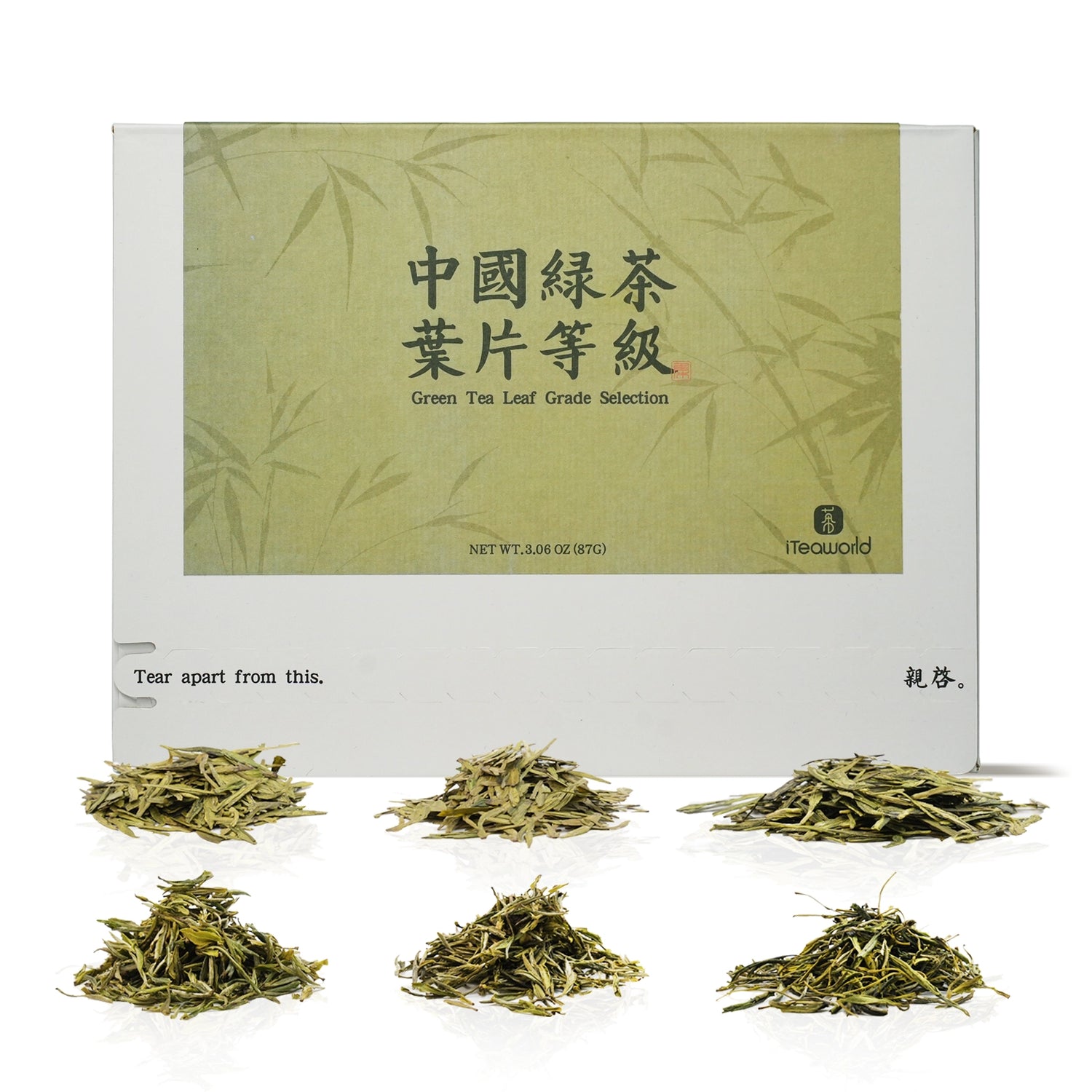
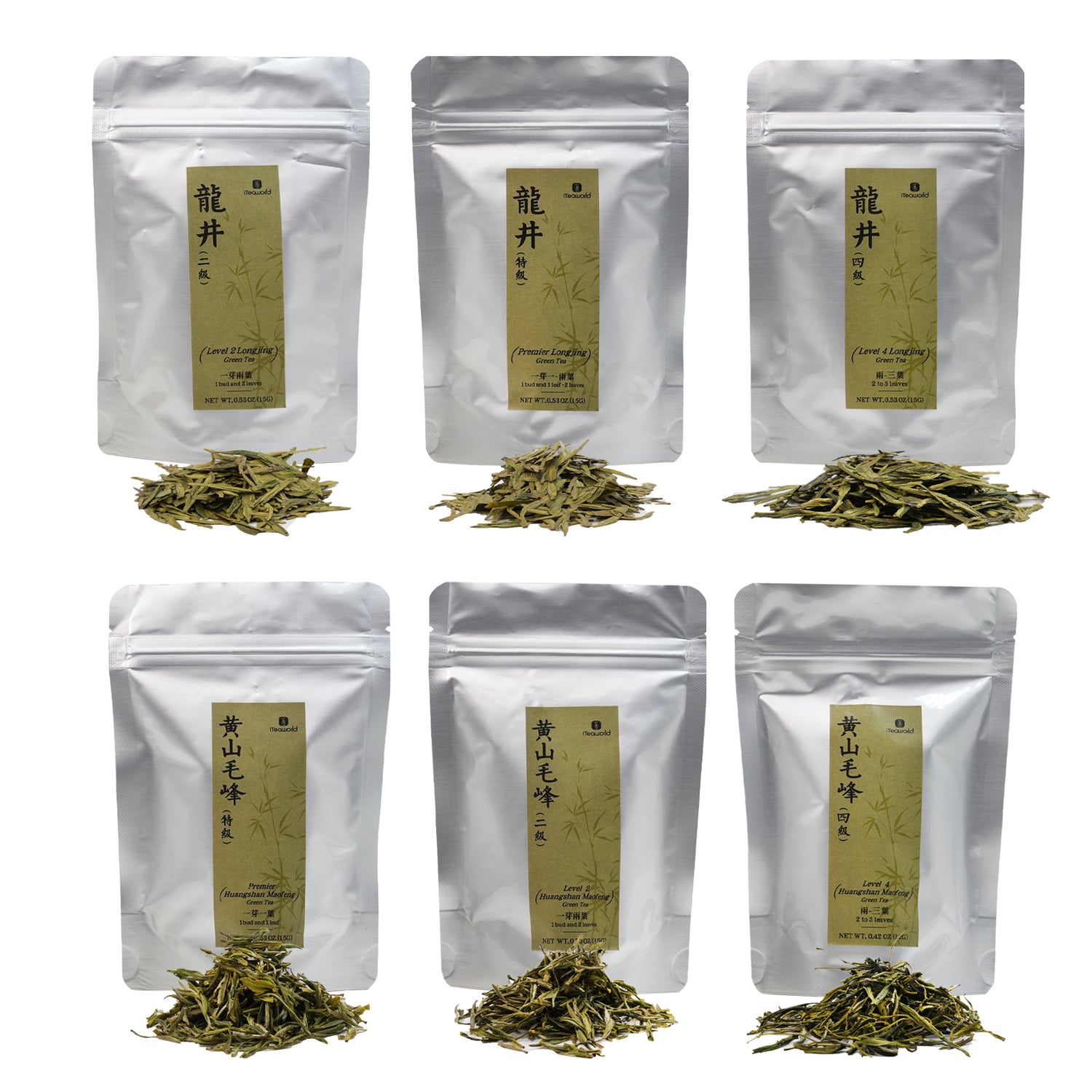
Chinese Green Tea Comparison Set: Longjing & Huangshan Maofeng Grades 90g
Chinese Green Tea Comparison Set: Longjing & Huangshan Maofeng Grades 90g
Introducing our Green Tea Leaf Grade Collection, a specially curated collection designed to help you discover how the picking grade of green tea leaves affects its flavor, aroma, and overall tea-drinking experience. This set includes two renowned Chinese green teas—Dragon Well (Longjing) and Huangshan Maofeng—both made from traditional heirloom varietals. The only difference? The picking grade of the leaves. You’ll be able to taste three distinct grades:
One bud, one leaf
One bud, two leaves
One bud, three leaves
Each tea is handpicked and processed by the same experienced tea master to ensure consistency in craftsmanship. By tasting the subtle variations from these different leaf grades, you'll develop a deeper understanding of green tea and find the perfect grade for your personal preferences.
Reasons for Recommendation:
Learn and explore – This set allows tea lovers to understand the direct impact of leaf grade on the tea’s taste, texture, and aroma.
Personalized tea experience – After trying different grades, consumers can better choose the perfect tea for their own palate.
Curated craftsmanship – The teas are crafted by the same master, so the only difference is the picking grade, ensuring a true comparison experience.
High-quality varietals – Made from traditional heirloom tea trees, these teas offer an authentic Chinese tea experience, highlighting the care and expertise in production.
This set is perfect for anyone curious about the nuances of green tea or those who wish to refine their tea selection skills. Whether you're a tea enthusiast or just getting started, this collection will guide you through the art of green tea grading and tasting.
To explore how aging changes the flavor of tea, we selected five traditionally charcoal-roasted Minnan Shuixian teas from Yongchun Beikeng Overseas Chinese Tea Factory—vintages from 1994, 2004, 2014, 2020, and 2024.
This tasting journey reveals how time transforms the rich character of Shuixian oolong. Let’s experience the evolution together.
This Set Includes:
2024 Minnan Shui Xian (Charcoal-Roasted, Rich Aroma Style)* 20 g
2019 Minnan Shui Xian (Charcoal-Roasted, Rich Aroma Style)* 20 g
2014 Minnan Shui Xian (Charcoal-Roasted, Rich Aroma Style)* 20 g
2004 Minnan Shui Xian (Charcoal-Roasted, Rich Aroma Style)* 20 g
1994 Minnan Shui Xian (Charcoal-Roasted, Rich Aroma Style)* 20 g
Flavor Evolution (For Reference)
2024 (New Tea):
Dominated by natural orchid aroma with a touch of charcoal roast. The fragrance is bright and long-lasting — when brewed with boiling water, the rising steam carries a rich floral note. The tea leaves a clear, lingering aroma in the cup. The taste is full-bodied, smooth, and sweet, with richness but no bitterness. It delivers a strong returning sweetness and a long, lingering finish. The liquor is robust yet not overly stimulating.
5-Year Aged (2020):
Orchid aroma fades, charcoal notes retreat. Hints of ripe fruit begin to emerge, along with a touch of fresh woodiness. A light acidity appears, but the tea still stimulates salivation. The overall taste becomes smoother, though slightly thinner in complexity.
10-Year Aged (2015):
Acidity lessens. Aged notes (like dry wood) blend with faint traces of orchid. The freshness is gone. The liquor becomes silky, and the returning sweetness shifts toward a rock sugar-like softness.
20-Year Aged (2005):
Dominated by aged aromas (sandalwood, herbs). The liquor turns amber, thick and rich like rice soup. The aftertaste is deep with a medicinal undertone.
30-Year Aged (1995):
A complex blend of aged and herbal notes (like ginseng and dried citrus peel). The liquor is thick, smooth, and almost oily. Sweetness is subtle and refined, with a long-lasting aftertaste reminiscent of aged liquor.
How to Brew?
Teaware:
For fresh tea, use a gaiwan or Yixing teapot.
For teas aged 5–10 years, use a Yixing teapot.
For teas aged 20+ years, use an old Yixing teapot or a coarse clay pot for boiling.
Water Temperature:
Fresh tea: 95–100°C
Aged tea: 100°C
Tea-to-Water Ratio:
1g tea per 20 ml of water
Awakening the Tea:
For teas aged 5–10 years: open the bag and let the tea breathe for about 5 minutes before brewing.
For teas aged 20+ years: open the bag and let it air out a day in advance.
Steep Time
Rinse First:
First infusion: quick 3-second rinse, discard — this is to warm up and awaken the tea.
2nd to 4th infusion: 8–15 seconds
From the 5th infusion onward: increase time by 5–10 seconds per brew
For Aged Tea (20+ years):
Can be boiled directly or brewed in a teapot for 10 infusions before boiling.
Introduction:
This Hubei Dark Tea is meticulously selected from the autumn harvest of 2022. Plucked from high-altitude tea gardens in Zhaoliqiao Town, Hubei Province, it adheres to the plucking standard of one bud and three leaves. This tea is a type of Hubei Dark Tea known as "Mi Zhuan Cha" (Rice Brick Tea), renowned for its unique flavor profile. The tea liquor is rich and robust, with a slight initial bitterness that transforms into a lasting sweet aftertaste. It primarily exudes a floral and honey-like aroma, accompanied by a subtle aged fragrance.
Reasons to Recommend:
- Unique Raw Material: Mi Zhuan Cha is a specialty tea produced in Chibi City, Hubei Province, known as the "Hometown of Chinese Brick Tea." It is a compressed black tea made entirely from tea dust, which gives it the name "Rice Brick Tea."
- Distinct Appearance: The finished Mi Zhuan Cha is visually striking, with sharp edges, a smooth surface adorned with intricate patterns, and a glossy black brick color. When brewed, it produces a deep red liquor with a pure aroma and a rich, mellow taste.
- High-Mountain Tea Gardens: The tea trees grow at high altitudes, where significant daily temperature variations slow their growth. The abundant mist and moisture nourish the tea trees, enriching the leaves with nutrients and resulting in a tea with a robust flavor and strong aroma.
Oxidation Level: Wet piling followed by high-temperature steam pressing
Roasting Level: None
Tea Garden Soil: Yellow-brown soil
Processing Time: Autumn 2022
Best Before Date: Suitable for long-term storage
Tea Variety: South Hubei Group Variety
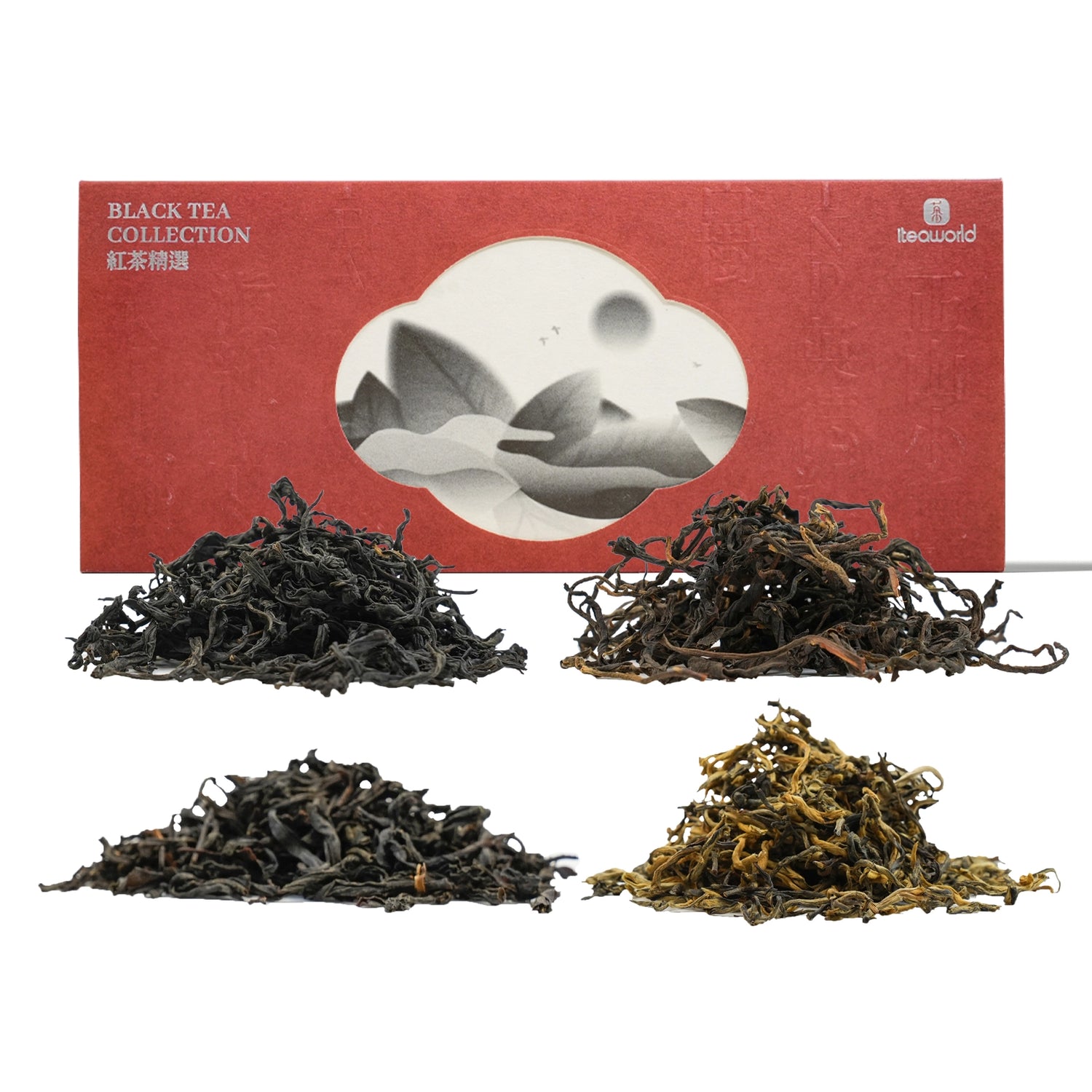

Chinese Black Tea Collection – 4 Premium Teas for Tea Enthusiasts & Gifting 100g
Chinese Black Tea Collection – 4 Premium Teas for Tea Enthusiasts & Gifting 100g
Discover Authentic Chinese Black Tea Collection
Chinese black tea has a 400-year heritage and remains deeply rooted in tradition. From the smoky pine notes of Tongmuguan’s classic Zhengshan Xiaozhong, to the refined, fruity aromas of Keemun prized by European royalty, to the full-bodied richness of Yunnan’s ancient-tree Gongfu black tea, each variety tells a unique story. What sets these teas apart is the dedication to traditional, hands-on methods: the leaves are handpicked, sun-wilted, and even slow-dried over charcoal or pinewood fires to preserve their natural shape and complexity. This commitment results in whole-leaf teas with a depth and character far beyond mass-produced, machine-processed black teas.
iTeaworld has curated this premium selection to showcase China’s finest and most diverse black teas, capturing varying fermentation levels and distinct terroir influences. Whether you’re a tea enthusiast looking to experience authentic Chinese flavors or seeking a unique gift, this collection offers a refined tasting journey through China’s rich tea-making legacy.
Note: Chinese high-quality black teas are best enjoyed on their own, without milk or sugar. If you prefer a stronger, milk-friendly tea, this may not be the ideal collection for you. But for those who appreciate nuanced, natural flavors, this set is an invitation to explore a truly exceptional tea experience.
Premium Chinese Black Tea Collection
Featuring the most authentic and popular black teas from China's top regions:
Wuyi Zhengshan Xiaozhong (Lapsang Souchong): 5 packs x 5g
Yunnan Golden Bud Black Tea: 5 packs x 5g
Keemun Black Tea: 5 packs x 5g
Yunnan Ancient Tree Black Tea: 5 packs x 5g
O U R T E A R E G I O N S
Lapsang Souchong (Pine-Smoked) : Tongmu Village, Xingcun Town, Wuyishan City, Fujian Province
Dianhong Golden Buds Black Tea: Fengshan Town, Fengqing County, Yunnan Province
Keemun Black Tea: Ruokeng Township, Qimen County, Anhui Province
Century-Old Tree Black Tea: Jingmai Mountain, Huimin Town, Lancang County, Yunnan Province
Recommended Purchase:
This authentic Keemun Black Tea from the core production area of Qimen County, Anhui, boasts a refined aroma that lingers, featuring unique notes of apple and orchid. It's best enjoyed plain to savor its natural floral and honey-like sweetness with a silky smooth finish. If you prefer bold flavors and plan to add milk and sugar, this tea might not be the perfect match for your taste.
Product Details:
Origin: Guanghui Village, Likou Town, Qimen County, Huangshan, Anhui Province
Harvest Date: April 15, 2024
Grade: Second Grade (Mao Feng), one bud and two leaves
Tea Cultivar: Qimen Zhuye (Qimen Broad Leaf Variety)
Craftsmanship: Traditional methods by tea master Feng Guochang
Flavor Profile: Distinctive "Keemun aroma" with apple and orchid notes, a refined and long-lasting fragrance, prominent floral and honey tones, and a sweet, smooth finish.
Highlight: An authentic Keemun Black Tea made from local tea trees in the core region, offering a perfect balance of flavor and richness—an excellent choice for everyday enjoyment.
About Keemun Black Tea:
Keemun Black Tea (or Qimen Hong Cha) originates from the Qimen region in Anhui Province, China, and its crafting technique is recognized as a UNESCO Intangible Cultural Heritage. Known as the "Champagne of Black Teas," it captivates tea lovers with its signature floral, fruity, and subtle smoky notes. During Victorian England, Keemun Black Tea was considered a luxury, often gracing royal and aristocratic tea tables. It became a staple in classic English Breakfast and afternoon tea blends. Compared to Ceylon and Assam teas, Keemun is more mellow and smooth, making it a refined choice for pairing with milk or sugar. Over time, it has earned its place as a luxurious favorite among Western black tea enthusiasts.
How to Brew
Water Temp: 203°F(or 95℃)
Tea-to-Water: 1g per 50ml
Steep Time: 20 sec for first 3 steeps, add 5 sec each time after
Teaware: White porcelain gaiwan
Re-Steep: 5-7 times
Tai Ping Hou Kui is a renowned Chinese green tea from the famous production area of Huangshan in Anhui Province. This tea comes from the core region of Tai Ping Hou Kui, specifically Qiaoshan Village in Xinming Township, where unique climatic conditions—cool, moist weather and fertile soil—create an ideal growing environment.
Our premium Tai Ping Hou Kui mainly consists of one bud and three leaves, carefully selected during the harvest, which typically occurs around the Grain Rain festival. Each leaf is covered in fine white down, showcasing its exceptional quality. We collaborate with Master Yu Jianguo, a tea farmer with over 20 years of experience in growing and crafting tea, ensuring expertise in creating this exquisite beverage.
This tea is made from the traditional seed-reproducing Shi Da Ye variety, known for its late-maturing characteristics. Coupled with the high altitude of the Huangshan region, the first harvest occurs around the Grain Rain period, resulting in a batch of Tai Ping Hou Kui that delivers vibrant flavors and aromas, captivating tea enthusiasts. Each sip captures the essence of its misty mountainous origins, offering a rich, smooth mouthfeel with a delightful sweetness.
Why Choose Tai Ping Hou Kui?
Authentic Craftsmanship & Core Origin: This Tai Ping Hou Kui comes from the heart of Huangshan City in Anhui Province, ensuring that every leaf captures the unique climate and fertile soil of the region. These natural conditions create an ideal environment for the tea trees to thrive, resulting in exceptional quality.
Direct Sourcing, Great Value: We collaborate directly with local tea farmers to ensure the authenticity and freshness of our tea. This direct sourcing approach not only guarantees high quality but also allows us to offer competitive prices, giving you premium tea without breaking the bank.
Early Spring Harvest: Our Tai Ping Hou Kui is harvested right around the Grain Rain season, making it one of the first teas of spring. This timing ensures that the leaves are picked while they’re bursting with vitality, preserving their delicate characteristics and rich flavors.
High-Quality Tea Varietals: We use the traditional Shi Da Ye tea tree variety, known for its late-maturing traits. Combined with Huangshan’s unique climate, this leads to remarkable quality, ensuring every sip is filled with pure, natural essence and aroma.
Many white teas sold online in the U.S. are either of lower grades or come from Yunnan, making it tough to find authentic Fuding white tea at a reasonable price. Our Gongmei white tea from the renowned Fuding region in Fujian offers just that - an authentic taste rooted in traditional sun-drying and slow withering crafts, meticulously made from the local "cai cha" variety.
If you're looking for a genuine origin, traditional tea craft, and a balanced flavor profile – neither too light nor too strong – this tea provides excellent value for money. Its smooth and easy-drinking character makes it a perfect choice for beginners.
Why choose our Gongmei White Tea?
Genuine Origin: Our tea comes from the prestigious Fuding region in Fujian, ensuring authenticity and adherence to Fuding's high standards.
Traditional Variety: We use the local "cai cha" variety, known for its strong adaptability and imparting a rich flavor profile to the tea.
Classic Craft: Our Gongmei white tea undergoes traditional sun-drying and slow withering processes, essential for developing the tea's fresh and pure taste.
Suitable for Long-Term Storage: The quality of this tea allows for long-term storage, with its flavor becoming more elegant over time, potentially increasing in value as it ages.
High-Value Choice: For those seeking the authentic flavor of Fuding white tea without the high price tag, our Gongmei offers a high-value choice without compromising quality.
Perfect Balance: If you're looking for a white tea that's neither too light nor too strong, our Gongmei achieves a perfect balance, providing a smooth and easy-drinking experience at a reasonable price.
Ideal for Beginners: Our carefully curated Gongmei white tea offers a gentle introduction for white tea novices, avoiding the pitfalls of being too bland or too strong for new tea drinkers.
Experience the gentle charm of our authentic Gongmei white tea, with its selected quality and value, making it an ideal choice for everyday drinkers and those new to the world of white tea.
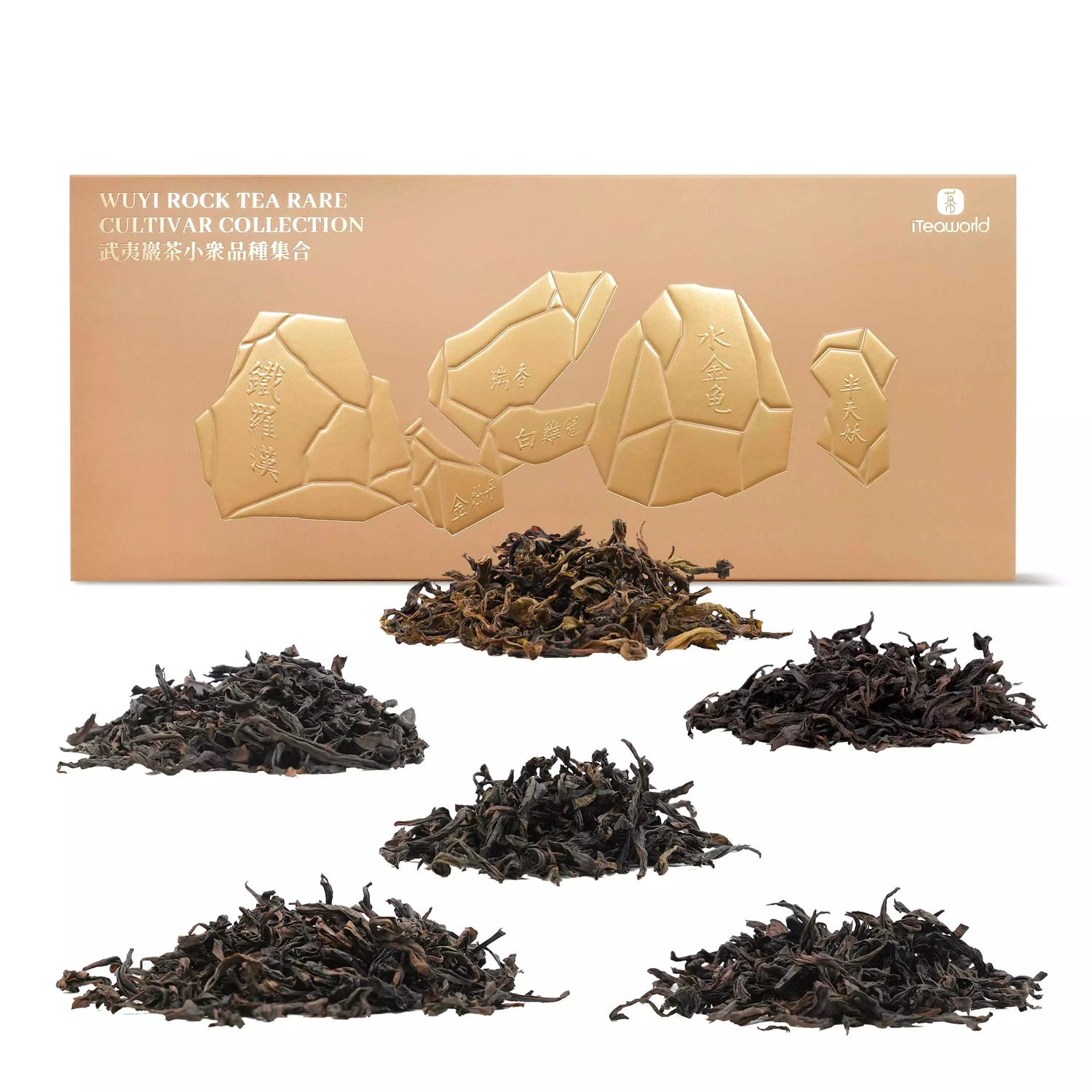
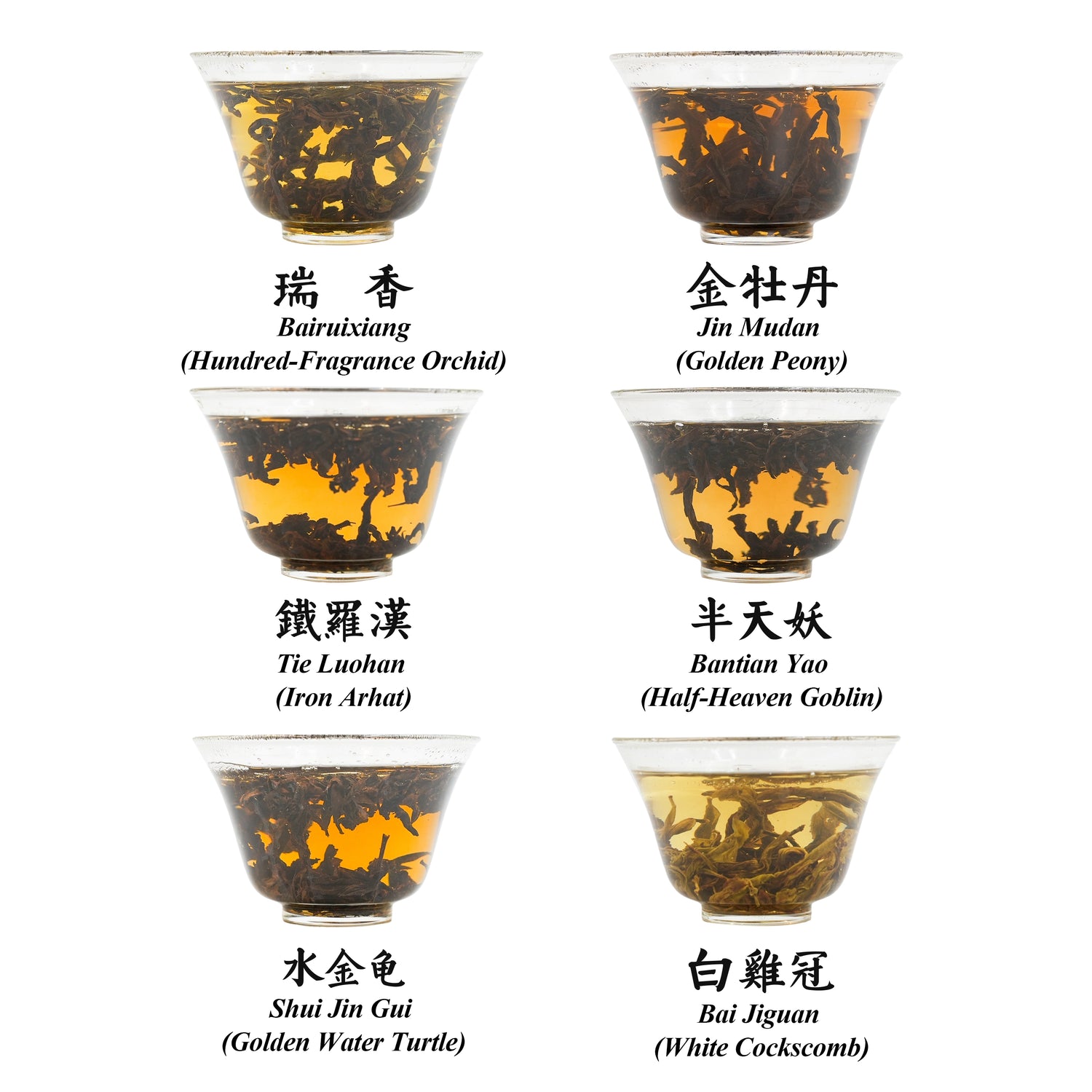
Wuyi Rock Tea Rare Cultivar Collection--Heritage & Innovation 100g
Wuyi Rock Tea Rare Cultivar Collection--Heritage & Innovation 100g
Rare Wuyi Rock Tea Cultivars: Hidden Gems from the Core of Zhengyan
While teas like Da Hong Pao, Rou Gui, and Shui Xian have become well-known representatives of Wuyi Rock Tea, the rare cultivars—such as Tie Luo Han, Bai Ji Guan, Shui Jin Gui, and Ban Tian Yao—tell a deeper, more authentic story. These teas originate from wild, heirloom tea trees that have grown for centuries in the heart of the Wuyi Mountains, shaped by natural selection and careful cultivation. They embody the original genetic heritage of Wuyi rock tea.
Grown on remote cliffs and craggy ledges in the Zhengyan core production zone—places like Guidong Cave and Sanhua Peak—these tea trees sink their roots deep into rocky crevices, drawing in rare minerals. The result is a flavor profile marked by the elusive and unmistakable "Yan Yun" (rock rhyme) that connoisseurs revere.
Who would enjoy this tea?
This collection is perfect for those who have explored the classic Wuyi rock teas and are ready to dive deeper into its rare and distinctive varieties. It includes historically renowned teas like Tie Luohan, Bàn Tiān Yāo, Bai Ji Guan, Shui Jin Gui, and Bai Rui Xiang, along with newer, highly sought-after cultivars like Rui Xiang and Jin Mudan. A journey through the diverse flavors and craftsmanship of Wuyi rock tea.
Wild Cliff Tea Herbal Tea: Also known as Shiya Tea, it’s a caffeine-free green tea from the high-altitude forests of Guangxi, China. Named for its unique growing environment—cliffs and steep slopes—this tea has a long history and was once a valuable tribute. It has a tight, heavy appearance, dark green color, and rich aroma. When brewed, it produces a bright green liquor with a fresh and sweet taste. Shiyan Tea is high in flavonoids, polyphenols, and amino acids, offering anti-inflammatory, detoxifying, and blood pressure-lowering benefits. It’s caffeine-free, making it suitable for those concerned about sleep.
Why Choose This White Peony Tea?
If you love delicate floral aromas, smooth textures, and the unique charm of traditional Chinese white tea, this White Peony (Bai Mudan) from Fuding, China, is a perfect fit. Its light sweetness and refreshing aftertaste make it ideal for beginners and seasoned tea lovers alike. Expertly crafted by Master Li Shengyuan using traditional sun-drying techniques, this tea is perfect for sipping, gifting, or collecting.
Product Details:
Origin: Fuding, Fujian, China
Harvest Date: April 2024
Grade: Premium White Peony (Bai Mudan)
Tea Variety: Fuding Da Bai (Big White)
Craftsmanship: Masterfully crafted by Li Shengyuan, a senior tea artisan with over 10 years of experience
Flavor Profile: Delicate floral aroma, smooth texture, and a refreshing, slightly sweet finish
What Makes It Special: A traditional sun-dried white tea from China’s famous white tea region, handpicked and expertly crafted for quality and collectibility
How to brew:
Water Temp: 194–203°F (or 90-95℃)
Tea-to-Water: 1g per 25ml
Steep Time: 30 sec first steep, add 5 sec each time
Teaware: White porcelain gaiwan
Re-Steep: 5-7 times
About White Peony Tea:
White Peony, or Bai Mudan, is a premium Chinese white tea known for its elegant floral fragrance, light sweetness, and clean, refreshing taste. Made from tender tea buds and the first leaf, it strikes a perfect balance between flavor and smoothness, making it approachable for beginners and cherished by tea enthusiasts. Its name comes from its unique appearance: green leaves and silvery-white buds resemble blooming flowers. When steeped, the leaves cradle the buds, creating a visual like a flower in bloom. While it can be aged, its tender nature makes it best enjoyed fresh.
Storage Tips:
To preserve its quality, store White Peony tea in a cool, dry place following GB/T 30375 standards.
For short-term storage: Use kraft paper or aluminum bags, remove excess air, seal tightly, and place in a tin or small box.
For long-term storage: Use triple-layer packaging (cardboard box, aluminum bag, and plastic bag) in a controlled environment below 77°F (25°C) with humidity under 50%.
The 2024 Silver Needle White Tea is a must-have for white tea enthusiasts and collectors. Crafted in Fuding, the birthplace of white tea, this premium tea is made from tender Fuding Da Bai buds using traditional sun-drying methods. Its delicate floral aroma, honey-like sweetness, and refreshing smoothness make it perfect for those seeking a refined and natural tea experience. Ideal for immediate enjoyment or aging, it’s a great choice for wellness-focused tea drinkers and collectors. However, if you prefer bold teas or add milk and sugar, this delicate tea may not suit your taste.
Silver Needle White Tea Product Details
Origin: Fuding City, Fujian Province, China
Harvest Date: March 23, 2024
Grade: Premium Silver Needle (First Grade)
Tea Variety: Fuding Da Bai (Big White Tea Bush)
Tea Master: Li Shengyuan, Senior Tea Artisan with over 10 years of experience
Flavor Notes: Delicate floral aroma, honey-like sweetness, and refreshing smoothness
What Makes It Special: Crafted in Fuding, the birthplace of white tea, using traditional sun-drying methods. This tea is made exclusively from tender tea buds, making it perfect for tea lovers and collectors alike.
What Is Silver Needle White Tea?
Silver Needle is the highest grade of Chinese white tea. Officially, it’s defined as a white tea made from the single buds of Fuding Da Bai or Shui Xian tea bushes through specific steps like withering, drying, and sorting. Harvested every spring, the picking season typically starts in mid to late March and ends around early April.
What sets Silver Needle apart is its exceptional freshness and smooth flavor, thanks to its high levels of amino acids, which give it its signature refreshing taste.
Perfect for enjoying now or aging for years to come!
How to brew
Water Temp: 194–203°F (or 90-95℃)
Tea-to-Water: 1g per 25ml
Steep Time: 30 sec first steep, add 5 sec each time
Teaware: White porcelain gaiwan
Re-Steep: 5-7 times
Pour Tip: Pour along the gaiwan’s side, not directly on leaves
How to Store Silver Needle White Tea
While white tea can be aged and stored for long periods, Silver Needle is best enjoyed fresh, similar to green tea, to appreciate its delicate and vibrant flavor.
Short-Term Storage: For small amounts, use kraft paper bags or aluminum pouches. Squeeze out excess air, seal tightly, and place the bags in a small cardboard box or tin can for safekeeping.
Long-Term Storage: If you’re storing a larger quantity, use a triple-layer method:
Wrap the tea in an aluminum pouch.
Seal the pouch in a plastic bag.
Place everything inside a sturdy cardboard box.
Keep the tea in a cool, dry place where the temperature stays below 77°F (25°C) and the humidity is under 50%.
Following these tips will help preserve its quality for years to come!
Recently viewed products
Chat with fellow tea lovers, ask questions, and share your tea moments.
Chat with fellow tea lovers, ask questions, and share your tea moments.





